#JUST TWO BOOKS NOT WRITTEN BY AMERICAN OR RECENT WITH ADDRESSES
Text
@oceanlaceagate
Well ok you asked for explaining so I'm so sorry about the rant that's bound to happen I have beef with this woman like many many MANY homeschool co-op mothers I would like to meet her IN THE PIT
uh I guess trigger warning possibly would be like food diets and possibly eating disorders I'm not sure but I would rather be safe then accidentally harm you friend?
my mother was a crunchy homeschool nutter and her entire social group was crazy homeschool mom cultists.They were all obsessed with clean godly eating and losing weight they constantly kept repeating that they needed to treat their bodies like temples and it really wasn't healthy or good for so many reasons.
well one of the women in that group for as long as i can remember (I've know this lady since I was a lil kid) she believes it's impossible for European women to get fat because of *spins the wheel*
She just has some fucked up made up facts about Europe in general like WARNING SHE'S ACTUALLY ON PURPOSE STUPID
like she has for as long as I can remember believed with E V E R Y FIBER in her body (i have argued so much with her she will not budge in her world this is fact) no one once they hit preteens in france eats bread.
France home of the croissant, baguette and many other carbs bready bakery wonders...
Yeah no one there eats bread that is why French women are so thin and healthy they don't eat bread or any kind of sweets! (She and my mom then tried to make me do that for a bit they were always "suggesting" diets on me it sucked in expecting the thm diet and the melted butter+coffee+ apple cider vinegar diet to have fucked up my body somehow)
Apartly in her world no one in Ireland uses any kind of fat when I asked her to explain wtf that meant she said no one in Ireland uses oil or butter which like..
No that makes no sense where did she even come up with that?!I
Once I took a picture of like some fancy imported butter from Ireland at the store to show her and she and the other moms all straight up walked away and would not look at it. They would not talk to me kept actually doin the "talk to the hand" thing and covering their ears and telling me I'm wrong and stupid and to shut up they will not look at the evidence.
This woman is in her late forties to early fifties she has convinced half the homeschool mother cult that no one in France eats bread with no evidence other then she said so!!!!!
They honest to God believe it also!!!!
Recently she was trying to tell me that no one in the UK eats chicken that it's "looked down on as a disgusting poor man's food" she just went on n on on this long crazy rant that made no sense at all but she acted like she was very intelligent and cultured for knowing this.
My best friend and wife is from the UK and frankly i quickly asked them and they were able to point out this lady is just batshit insane.
Like my wife mentioned there's Nandos everywhere in the UK and that serves chicken mainly I have no clue where she's getting her info or ideas.
She got super angry amd defensive and has gone off saying she has two sources "two very reliable very real and very British people who totally aren't made up there her real Facebook friends that told her yup no one in the uk eats chicken only the USA makes fried chicken poor England is missing out on chicken because they're a bunch of snobs who think it's poor people food" so that's what she believes despite a lot of common sense and evidence to prove otherwise but "how dare I question an elder?!'
I really can't explain it like there's no logic or facts in it I myself don't understand it? I have gotten into many fights with this women.
So many fight
so so so many fights
Stupid amounts of fights
not just over this but like over everything under the sun I swear this woman is living a different reality then everyone else.
she just makes stuff up on a fly and then somehow convinces herself and like a dozen other women in they're 40s-50s that everyone in Europe is significantly skinner because they just happen to not eat the food that one lady dislikes...
like I can't really explain more then that this woman has no evidence, refuses to listen to evidence and has the firmest faith in stupidity I've ever seen it's truly kinda terrifying i wish i had her self confidence but also just wow....
I don't think that she's normal I think a lot of American children do actually learn about other countries? I learned about other countries when I was really young my mom would focus on one a month and then I'd have to do a lil presentation at the end of the month in front of my grandad and we'd cook a meal with some traditional foods from there if possible I had a lot of fun learning recipes from all over the world and we'd get a monthly cd with music from all over the world it was so cool! one of my favorite games when I was little with my grandad was he'd spin the globe point at random n then i had to say thw county, the capital, a famous food item from there and one history fact is famous person if I knew one and it was SO MUCH FUN!!!
maybe it's a new homeschool thing or a church thing or maybe this lady is just straight up purposely stupid I'm not sure? I have no fuckin clue this woman is insane I avoid her every chance I can.
#rants#ignore me I'm stupid#just yeah#she was one of my mom's bffs and lord she made life hell#Narnia a book written by a Catholic man with DJ much religious imagery and symbolism in every single book in the book series#and progressively gets more n more christan the further into the series you get#was evil and satanic#she yelled at me for liking old yeller#she was CRAZY#but the scary thing is she got a lot of women believing her every word especially European diet shit it was CRAZY#only Americans have addresses no one else dose i guess according to her she got my grandma to believe that for a bit until i pointed out#THE MILLIONS OF BOOKS WRITTEN BY A BILLION AUTHORS ALL OVER THE WORLD THAT MENTION ATREET NAMES AND ADDRESSES#LIKE EXAMPLES PRIDE N PREJUDICE AND SHERLOCK HOLMES HABE ADDRESSES MENTIONED#JUST TWO BOOKS NOT WRITTEN BY AMERICAN OR RECENT WITH ADDRESSES#that got my gran to think a bit but that lady thinks they must have been influenced by Americans aomehow shes SO STUPID IT FILLS ME W RAGE#her daughter told me jesus didn't eat seafood and seafood was unbibical#i.... I do not understand#like do you know where jesus lived do you know what some of his friend's jobs was or like the sermon on the Mount#dis you not read the Bible? why you mad ay me for eating all the time#now that i think of it a lot of times her crazy food things tend to be things i was currently eating kr talking about that i enjoyed eating#huh#weirdo lady#she yelled at me for eating two Oreos once#like yeah i wasn't being greedy but yeah she really got mad over that#now that my mom's passed she texts me randomly because she misses my mom n i think she wants me to fill the void i feel kinda bad for her#but i can't#i can't be her friend not after the shit she influenced my mom too be so cruel to me in the name of God growing up#i will not be her friend#that and she's stupid ofcorse people eat chicken bread and butter that's kinda the most basic human foods i feel like#EVERYBODY HAS BREAD EVERYWHERE BREAD IS THE MOST HUMAN THING
7 notes
·
View notes
Text
Good News - March 22-28
Like these weekly compilations? Support me on Ko-fi! Also, if you tip me on here or Ko-fi, at the end of the month I’ll send you a link to all of the articles I found but didn’t use each week - almost double the content! (I’m new to taking tips on here; if it doesn’t show me your username or if you have DM’s turned off, please send me a screenshot of your payment)
1. Scimitar-horned Oryx: A Story of Global Conservation Success
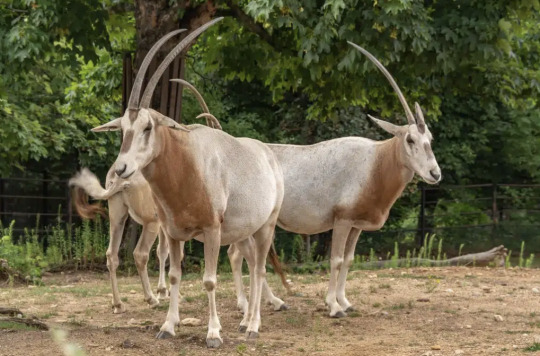
“Eight years following the first reintroductions of the species in a protected range in Chad, the species has been downlisted to ‘Endangered’ [an improvement from “extinct in the wild”] in the most recent IUCN Red List update.”
2. Thailand moves closer to legalising same-sex marriage
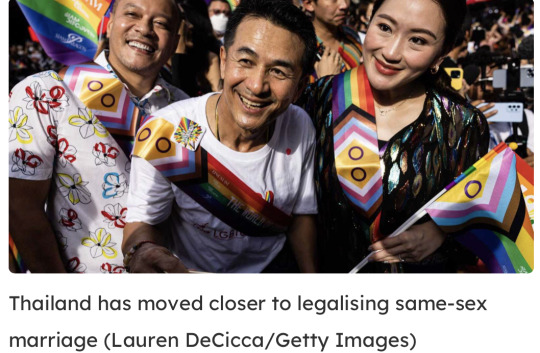
“Under the law, it describes a marriage union as one between two individuals, rather than a man and a woman. It will give LGBTQ+ couples the ability to adopt, have equal access to marital tax savings, rights to property and the ability to decide medical treatment when their partner is incapacitated.”
3. Juvenile platypus found in NSW: a sign of breeding success
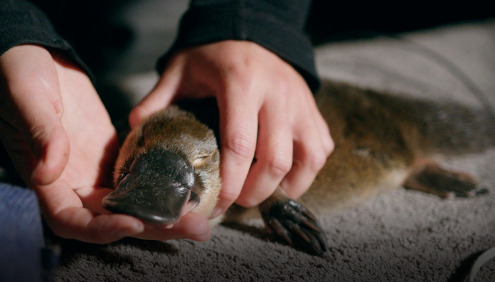
“A baby platypus was discovered in the Royal National Park less than a year after 10 were reintroduced to the area, marking the end of a half-century local extinction. […] “Finding the juvenile platypus is a clear sign the reintroduced population is not just surviving but thriving, adapting well to their environment, and contributing to the genetic diversity and resilience of this iconic species.””
4. New Laws Protect Bird-Friendly Yards From Neighborhood Rules
“A blossoming legislative trend prevents homeowners associations, which set landscaping rules for a growing number of Americans, from forbidding native plants.”
5. Bookstores Around The World Are Flourishing Again

“[I]t’s not just the major chains like Barnes & Noble that are flourishing, as the US book sales market continues to both grow and diversify, the majority of the retail book market is controlled by small indie stores.”
6. 'Like a luxury condominium': Providence zoo unveils new red panda habitat

“"Kendji and Zan's new home boasts a spacious two-story, climate-controlled indoor space designed to mimic their natural Himalayan habitat," the zoo said in a news release. "This ensures their well-being regardless of fluctuating Rhode Island temperatures and humidity."”
7. The first CULTIVATE Mobile Research Lab on food sharing in Barcelona
“[Volunteers] engaged in growing, cooking and eating food together, and redistributing surplus food, as well as other actors involved in food sharing and sustainable food systems in Barcelona and its surroundings.”
8. New Methane Rule Will Reduce Natural Gas Waste, Generate Money for Taxpayers, Help Address Climate Change

“The Bureau of Land Management’s final rule on reducing methane waste from oil and gas production on public lands will conserve critical energy resources, with the added benefit of decreasing toxic pollution [….] The rule will benefit wildlife, public lands, water resources, and nearby communities. By requiring royalties for wasted methane, the rule will also generate more than $50 million each year for American taxpayers.”
9. 'Exceptional' Two-Headed Snake Undergoes Surgery in Missouri

“Tiger-Lily's [the snake’s] abnormal ovaries were then removed during surgery at the Saint Louis Zoo Endangered Species Research Center and Veterinary Hospital on March 11. The procedure went smoothly, with her ovaries being successfully removed, and the snake is recovering well.”
10. Aruba Embraces the Rights of Nature and a Human Right to a Clean Environment

“A draft constitutional amendment would make the Carribean nation the second country in the world to recognize that nature has the right to exist.”
March 15-21 news here | (all credit for images and written material can be found at the source linked; I don’t claim credit for anything but curating.)
#hopepunk#good news#deer#conservation#endangered#animals#africa#thailand#lgbtq#gay rights#gay marriage#same sex marriage#platypuses#australia#hoa#native plants#wildflowers#bookstore#books#zoo#red panda#barcelona#spain#food#food insecurity#interdependence#natural gas#climate change#snake#palm beach
4 notes
·
View notes
Text
Reading Wrap-Up November AND December 2023
Got a wee bit distracted with my job and didn't do a write-up for November, but I only finished one: Night of the Living Rez by Morgan Talty.
Talty is a citizen of the Penobscot Nation and an assistant professor of English in Creative Writing and Native American and Contemporary Literature at the University of Maine in Orono (bio I copied directly from Wikipedia). I read his book for Native American History Month (and technically Winter in the Blood by James Welch...which I have yet to finish because although I've been traveling a lot recently, I have not done it in such a way conducive to listening to audiobooks.)
It's a good book of short stories which, for me, hit harder because of how they were arranged (packs a bigger emotional punch.) Also worth noting is that Talty has a full length novel coming out next June (Fire Exit, I plan to pre-order it once I have a set address.)
As for December (unless I finish Silver Nitrate in two days) I've read The God of Small Things by Arundhati Roy (so so so so fucking good and emotionally devastated and awful you do not understand how much this book wrecked me but it was so well written I could not stopppp) and The Memory Police by Yōko Ogawa Yōko Ogawa.
(If you can't tell, I loved The God of Small Things.)
The Memory Police I was a bit mixed on. It was dystopian (I don't read that genre much) and I probably should have consulted a reading guide as I went through it rather than a quick summary before, because I found the meaning a bit difficult to parse through on my own (it's a dense rich boom, though I feel like a lot of its charm was lost in translation.) Unlike some books I've listed here, I didn't hate it; I just don't think I 'got' it and probably need to dig into why.
Anyway, Happy New Year! Hope next year brings other good books!
-Mango
#Bookish#Books#Booklr#Night of the Living Rez#Morgan Talty#Fire Exit#The God of Small Things#arundhati roy#the memory police#Yōko Ogawa#Mango Tag#Mag tag#Books 2023
3 notes
·
View notes
Text
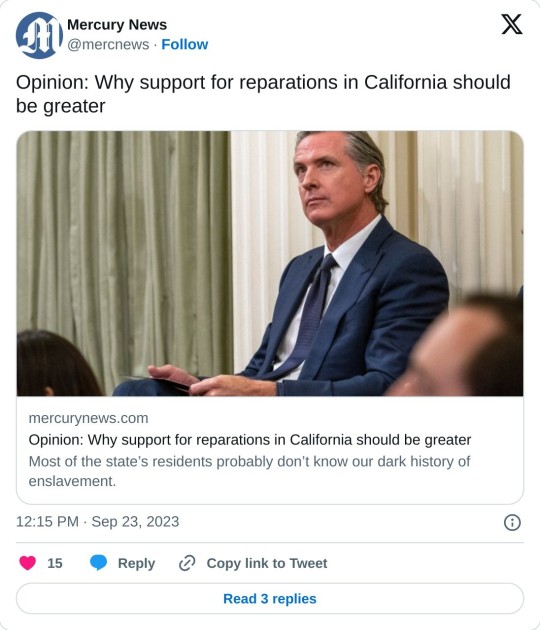
An August poll by UC Berkeley found that most Californians oppose paying cash reparations to the descendants of the enslaved.
As a supporter of reparations, I found the results disappointing. But not surprising. Most of the state’s 40 million residents probably don’t know our dark history of enslavement. The poll didn’t provide that context, making it hard for people to feel responsible for something that happened long ago.
I grew up thinking mistakenly there was no slavery in California.
I got that impression in the fourth grade, the time when California students study our state’s history. My 1963 textbook, “California: Story of Our Past,” presented an idealized version of the conquest of California, with Indians delighted to meet the “kind and brave captain,” Juan Cabrillo, the first European to explore the coast. There was no mention of the deliberate killing of Native Americans or how they were forcibly kept at the 21 missions.
Fortunately, students today learn a more nuanced view of California history, including how Native Americans resisted colonization.
But the history of African Americans in California is not widely taught. And that is influencing public policy.
California was admitted to the union in 1850 as a free state, one where slavery was illegal. But slavery was integral to California’s origins, as two new studies, the recently released report by California’s Reparations Task Force as well as “California, A Slave State” by Jean Pfaelzer, illustrate.
As many as 1,500 people were enslaved in California, brought by their Southern enslavers to work in the gold fields. When some miners went bust, they sold off the men they enslaved. A June 17, 1852, notice in the San Francisco Herald advertised a “Negro for Sale” for $300, according to Pfaelzer.
California not only neglected to enforce the state’s slavery ban, it also passed harsh laws curtailing the rights of African Americans. The first governor of the state tried to ban African Americans from settling here. California’s version of the Fugitive Slave Act was more onerous than the national law.
I am a fifth-generation Californian who has written two books on the state’s history, but I didn’t learn about its slave-holding past until I read the task force’s report in June.
The lack of knowledge of the harm government did to Black residents may account for the poll, which shows that 59% of those queried oppose cash payments, even though 60% believe that Black Californians are still affected by the legacy of slavery.
A main reason for the opposition is “it’s unfair to ask today’s taxpayers to pay for wrongs committed in the past.”
But the poll didn’t detail the “wrongs committed in the past,” leaving respondents to rely on information they had already acquired.
One of the important aspects of the task force’s report is its exploration of how harms to Black Californians continued long after the Civil War. Government policies denied African Americans access to homes and loans through redlining, segregated them in substandard schools, and over-policed them.
The task force recommends numerous remedies, not just cash payments, to repair this harm, such as easy access to home loans, free education, and community-based health and cultural centers. None of these options were mentioned in the poll.
In 2019, Gov. Gavin Newsom apologized to Native Americans for the state’s role in nearly obliterating them. It’s time for California to acknowledge the harms it did to its Black residents.
So far, Newsom has been mostly mum on the task force’s recommendations. He may be waiting until January when the Legislature will address the report.
But that is too late. If an important part of repair is shedding light on historical harms, officials must educate voters about California’s dark history. Only then will people realize that reparations are not handouts, but a debt owed for past harms. And without that fundamental realization, support for reparations will remain low.
#Reparations#california#Freedmen#Black Freedmen#Opinion: Why support for reparations in California should be greater
3 notes
·
View notes
Photo
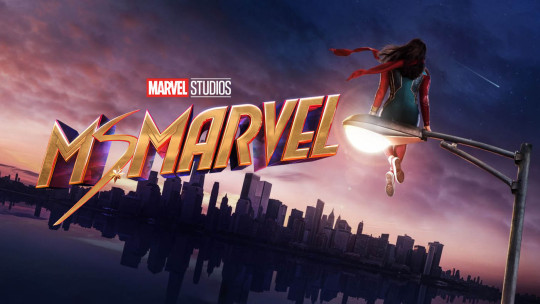
Ms. Marvel Series Review
This is… cosmic. Disney+’s latest addition to the MCU, Marvel Studios’ Ms. Marvel, is possibly the most refreshing show I’ve seen this year. Kamala Khan has made her debut, and she’s going to be a star.
Ms. Marvel stars Iman Vellani as Kamala Khan/Ms. Marvel. Filling out the supporting cast is Matt Linz as Bruno Carrelli, Yasmeen Fletcher as Nakia, and Laura Marsden as Zoey Zimmer. Kamala’s family is played by Mohan Kapoor (Yusuf/Dad), Zenobia Shroff (Muneeba/Mom), and Saagar Shaikh (Aamir/Brother). Other characters of note include Rish Shah (Kamran), Nimra Bucha (Najma), Aramis Knight (Kareem), Adrian Moayed, and Alysia Reiner (Damage Control).
Before reviewing the episode, I want to talk about Kamala’s history. “Ms. Marvel” was created by Sana Amanat, G. Willow Wilson, and Adrian Alphona in 2013. In the decade since her creation, Kamala has been a central figure in many plotlines such as "Civil War II" and the “Marvel’s Avengers” video game.
Kamala, in the comics, is a Muslim American teenager living in Jersey City who was one day exposed to Terrigen Mist, unlocking her Inhuman abilities. The mist gave her the ability to stretch her body parts like Mr. Fantastic. She can also shrink or enlarge her body. In recent iterations, she can change the shape and hardness of her fists.
As the first Muslim American superhero, Kamala has given necessary representation to a marginalized group. And best of all, Kamala is just a relatable teenage girl facing the same problems as the readers. Some could consider her this generation's Peter Parker. Now, let’s talk about the Disney+ show.

Spoilers for All 6 episodes of Ms. Marvel
Ms. Marvel is probably the best Marvel/Disney+ show since WandaVision… for the first 3 episodes. The editing is pitch perfect. It matches the feeling and energy of Kamala. One of the most impressive aspects is how they implement text conversations, for example: having the words appear in neon lights near the characters. We are even occasionally treated to seeing how Kamala sees the world. When she meets Kamran for the first time, we see fire and 100 in emoji/doodle style. It’s a little cheesy but very fitting of Kamala’s personality.
The end credits for all the Marvel shows so far have matched the feeling and style of their shows. For me personally, Ms. Marvel’s end credits are the best. The references to Ms. Marvel's iconic comic book covers…chef's kiss. The Pakistani-inspired music is a vibe. There are also two versions of the credits: one in Jersey City and the other in Karachi.
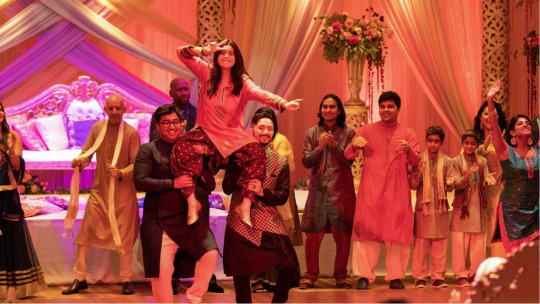
Okay, let’s address the glow-y elephant in the room: Kamala’s powers. I understand that no one wants to deal with the hassle of making people stretch like Mr. Fantastic. The hard light they use instead is kinda cool and a nice dig at DC by Marvel. But I will never forgive Marvel for throwing out Marvel’s Agents of S.H.I.E.L.D. The show had a perfect explanation for why Kamala would be an Inhuman. At first, I was going to get over it because they decided to tie Kamala's powers to her culture. But they kept changing the origins: first, she was a Djinn, then a descendant of extra-dimensional beings, and finally, at the end of the series, she's potentially a mutant. Why!?!
My other complaint about the series is a complaint that many have for all the Disney+ shows. Most of these shows are not written as shows; they are written as six-hour movies. The real problem is that the writers have ideas for maybe 3 hours but still need to fill the other 3. There are always at least 2 episodes in these 6-episode series that are either unnecessary or kill the momentum of the series. These shows either need to be 13 episodes or made into movies.
What’s really upsetting is that this show had so much potential at the start. Episodes 4 and 5 were even okay for worldbuilding but do very little in advancing the plot. At first, it felt like this was a simple coming-of-age, superhero origin story. Then, there's a potential end-of-the-world plot that wraps up in episode 5. Then, the finale is all about protecting Kamran, not Kamala, from Damage Control. This show is still really good, but it suffers from whatever executive decided streaming shows can only be 6 episodes long.
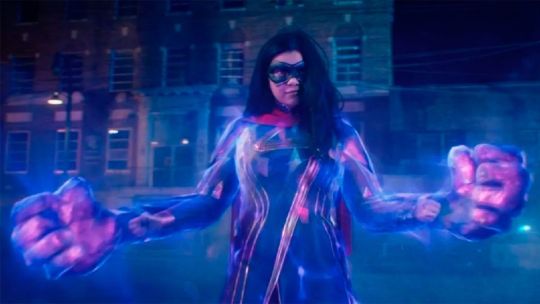
Before I wrap up, I have to praise the entire cast. Besides the amazing representation of Southwest Asian culture and Muslim communities, Iman Vellani is a perfect Ms. Marvel. Like how RDJ is Tony Stark or Ryan Reynolds is Deadpool, Iman is Ms. Marvel in every way. She’s bright, funny, a superhero fan, and just the character come to life. I also give props to Matt Linz, Yasmeen Fletcher, Zenobia Shroff, and especially Mohan Kapoor. They all played their characters extremely well. I can't explain why but I think the dad is my second favorite character.
Here are a few other highlights of the series. Episode 1 is a perfect series opener. In episode 3, there's a whole Pakistani/Muslim/Bollywood wedding scene that is absolutely lit. How the Mosque behaves when Damage Control comes looking for Kamala and Kamran, felt true to life. Seeing Kamala's costume come together piece by piece made the wait worth it. Seeing the community rallying around Kamala against Damage Control, including the local police, was very satisfying. Also, she says, “Embiggen”.
The final moments of the series did something I did not expect at all. As some of you know, Ms. Marvel will be joining Captain Marvel and Monica Rambeau in The Marvels. We now know that part of that plot will involve Ms. Marvel and Captain Marvel switching places. This does make me a little more excited to see The Marvels in 2023.
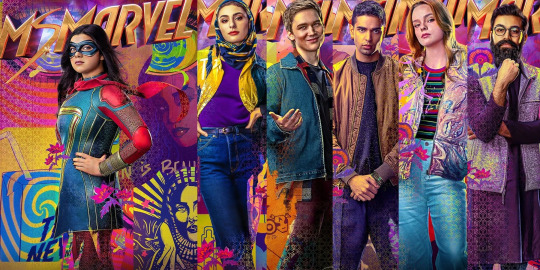
All episodes of Ms. Marvel are now streaming on Disney+.
TL/DR: Ms. Marvel has a strong start, great acting, and a distinct personality.
Episodes 4 and 5 drag the show down a bit.
SCORE: 9/10
By: Tré Hanzy
Follow us on Twitter: https://twitter.com/Advent_Seven
Subscribe on YouTube: https://www.youtube.com/user/AdventSevenMedia
See us on Instagram: https://www.instagram.com/advent_seven/
Join our Subreddit: https://www.reddit.com/r/AdventSeven/
Find Us on Facebook: https://www.facebook.com/AdventSevenMedia/
4 notes
·
View notes
Text
March Wrap Up Part 4 (I may need to find a better system)
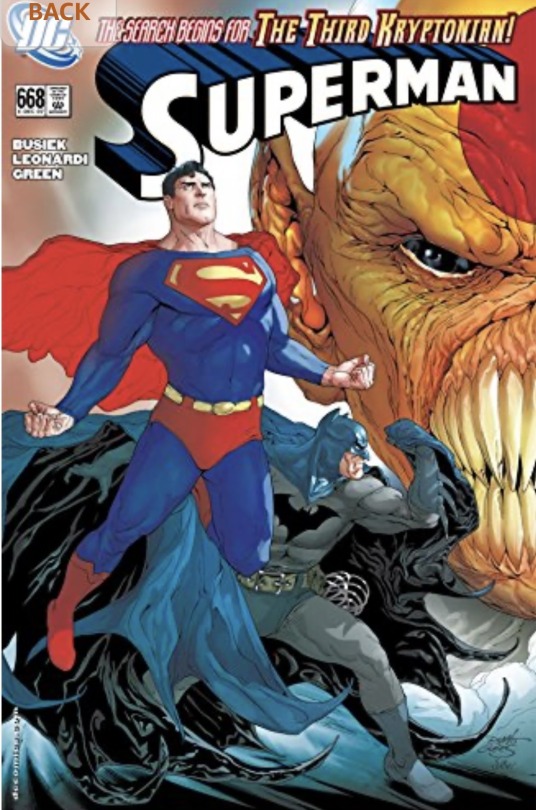
Superman (1987) 662, 668
Dates Read: 27 March
Review: 3 stars
Thoughts: Reading all of Chris’s comics is an interesting experience, boys timeline makes no sense. Hard to say my thoughts on either of these issues on their own merits-they’re both clearly one issue in an arc. I’ll probably go back and read the rest of the arc for issue 662 because it was an interesting start-i actually have to forecast siroccos so that was kinda a fun name for a hero for me lol. The third Kryptonian arc I’ll try and finish this month lol.

The American Daughters by Maurice Carlos Ruffin
Dates Read: 25 March- 29 March
Review: 2 stars
Thoughts: Hey have you ever written a hood story and then decided to fucking ruin it completely with an epilogue? Well so did this author! Why why why why did this book go from being a historical drama to a fucking sci-fi in the epilogue. Explain it to me. Really truly. Because it was some of the stupidest shit I’ve ever read. God it made me mad. I’m making all my book people read it. I need to know what their authentic reactions are to that fucking acid trip of an epilogue. OTHER THAN THAT I liked this. The author didn’t Go There enough for my personal preference but that’s not the story he was setting out to write I suppose. A sapphic story of an enslaved woman becoming a spy and thwarting the man who enslaves her? Absolutely a story I’m down for. Unfortunately the pacing was very bad. In summation-I did not like this and I’m mad as hell about it.
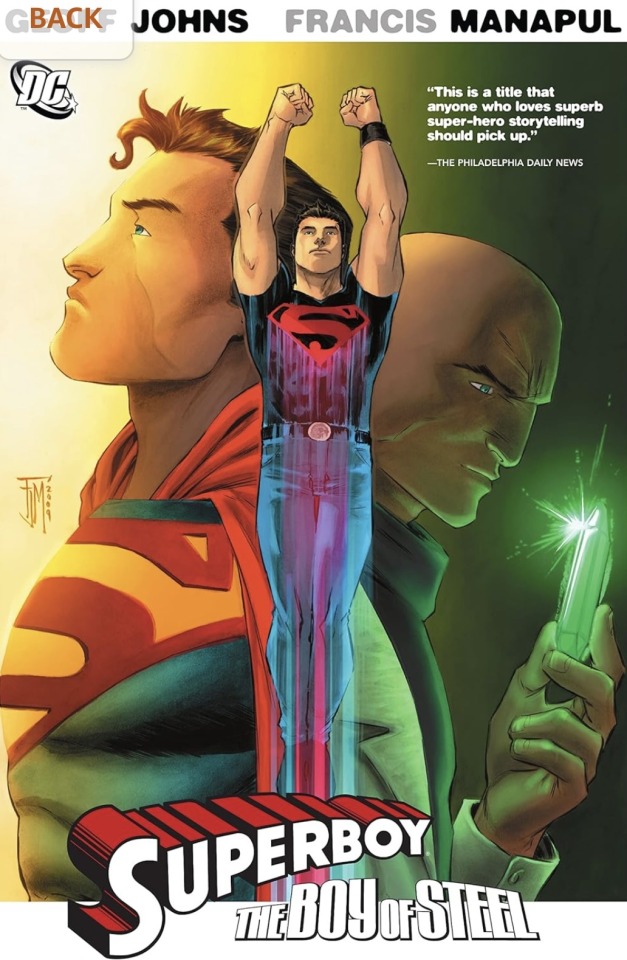
Superboy the Boy of Steel by Geoff Johns
Dates Read: 31 March
Review: 3 stars
Thoughts: I loved the art of this so much. The first two pages technically being a Blackest Night tie in and the rest of the collected not addressing the event at all was absolutely hilarious to me. This was a fun story, it felt like the set up it was and it’s pacing worked well for what it had. I’ll get to Smallville Attacks soon I swear. It’s sitting next to me while I type this.
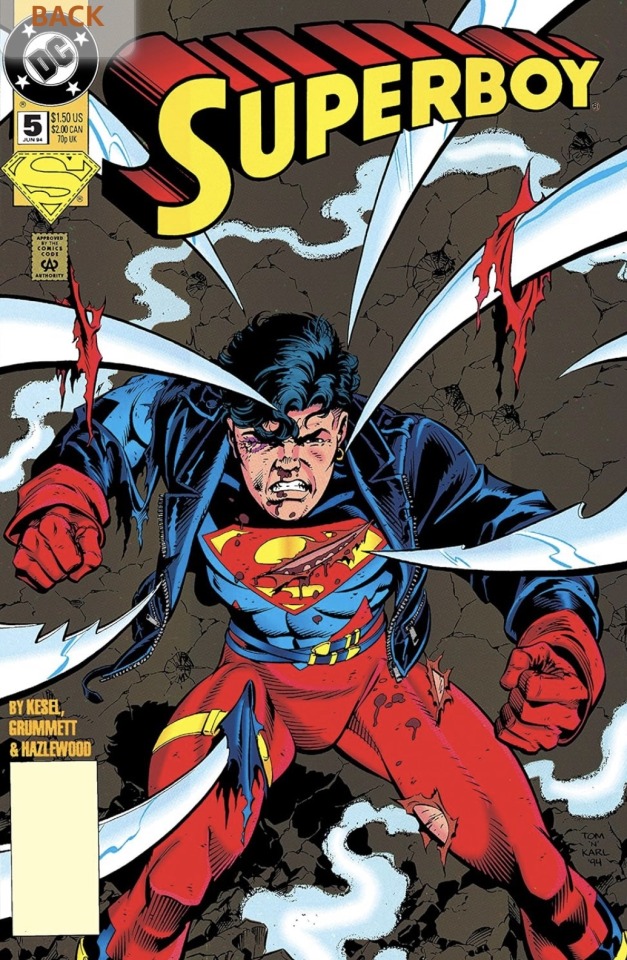
Superboy (1994) 5
Dates Read: 31 March
Review: 3 stars
Thoughts: this was another reread. Not too much to say about it other than how intense my dislike is for Tana-I am simply unable to look past her age Jesus Christ. Kon being absolutely determined to be a hero always breaks my heart a little.
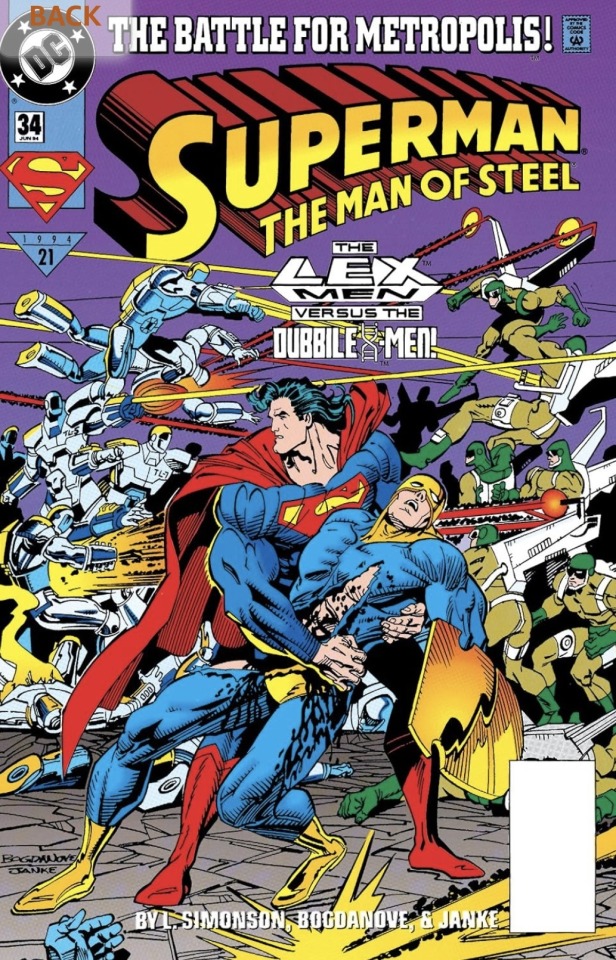
Superman Man of Steel 35
Dates Read: 31 March
Review: 3 stars
Thoughts: Thjs was really interesting to me because in the most recent collected release of Kon’s 94 superboy run they do not include this issue or any of the rest of this arc so Kon just gets magically cured off page with no explanation there.
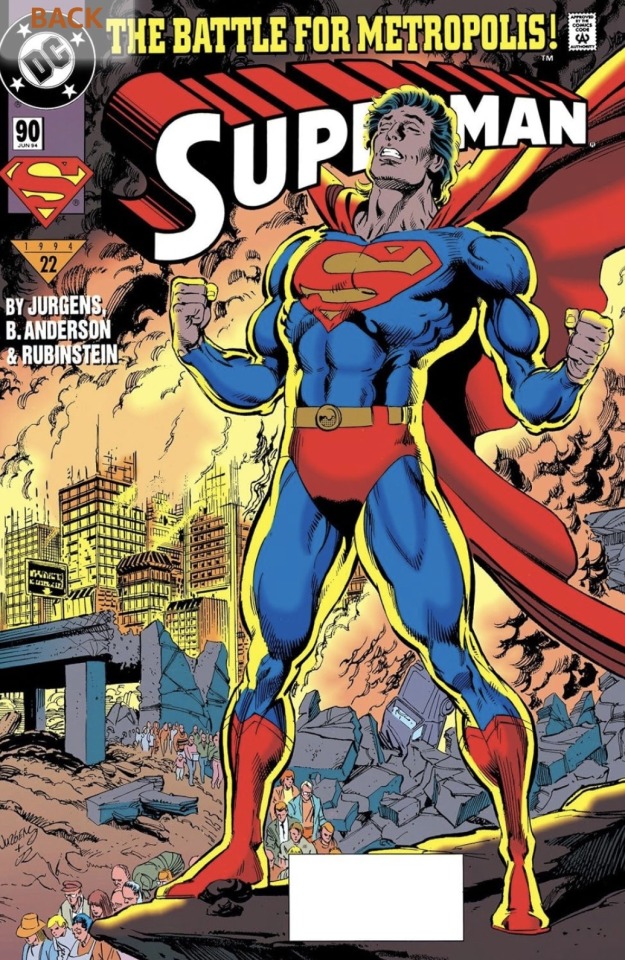
Superman (1987) 90
Dates Read: 31 March
Review: 3 stars
Thoughts: Jesus fucking Christ Luthor is crazy.
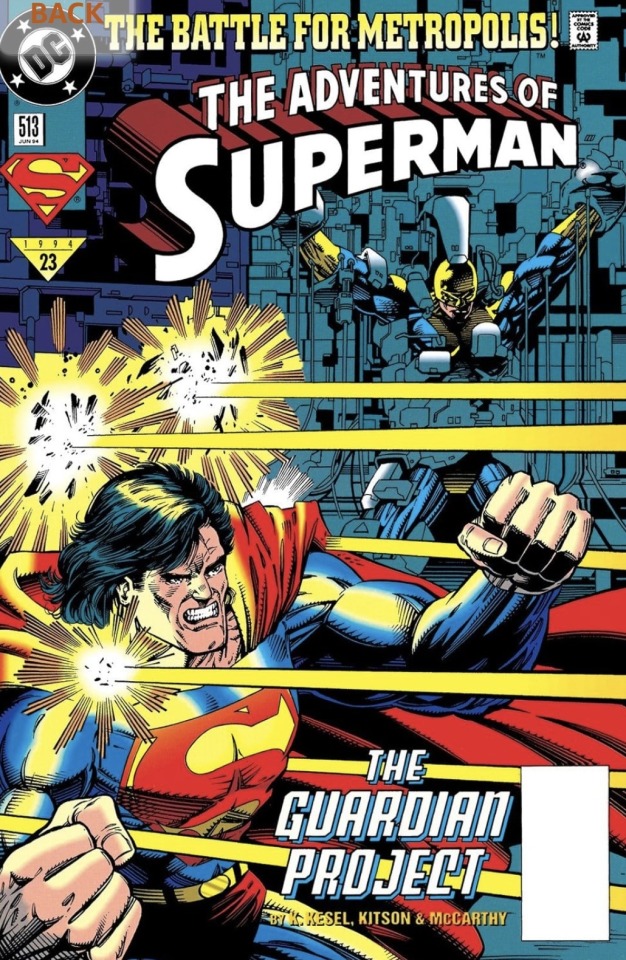
Adventures of Superman 513
Dates Read: 31 March
Review: 3 stars
Thoughts: My biggest take away from this issue was Kon believing he’d failed to evacuate the mountain and hating himself over it. Because I love Kon more than I love Clark lol.

Steel 5
Dates Read: 31 March
Review: 3 stars
Thoughts: This is listed as a battle for metropolis tie in issue but there’s only a few panels that do that and the character who’s having the tie in is completely foreign to me. A story about kids doing drugs on the streets isn’t really my cup of tea but it was fine.
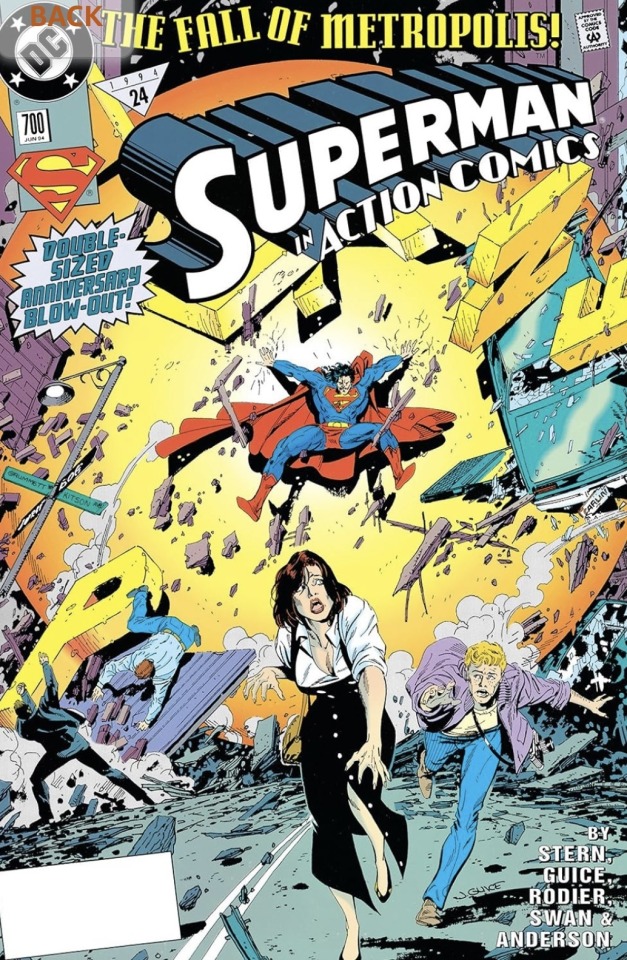
Action Comics 700
Dates Read: 31 March
Review: 3 stars
Thoughts: damn they fucking destroyed metropolis in this one. The amount of times they blow up the globe from the daily planet to symbol tremendous loss in Superman’s life is kind of ridiculous at this point. I liked seeing the superfam all working together in this!
IN SUMMATION!
I read 7 novels, one novella, one poetry collection, one ‘collection of essays’, 4 graphic novels, two comic collecteds, 10 volumes of manga and 33 single issue comics. According to Goodreads I’m now ahead of my goal! According to StoryGraph (the one where I’m not counting comics, collecteds, or manga) I remain behind. A tragedy.
0 notes
Text
https://www.washingtonpost.com/dc-md-va/2023/07/29/black-hair-children-book-bans/
Her book empowers Black children, and hopefully won’t enrage adults

The email shouldn’t have made me nervous.
It was from a young Black woman raised in D.C., and it contained an advance copy of a children’s book she had written.
The work had grown from an earlier project St. Clair Detrick-Jules launched after her younger sister, Khloe, was bullied by classmates for her Afro and didn’t want to return to school. Other students had called the 4-year-old’s hair ugly, and she had believed them. Hearing what happened to her sister reminded Detrick-Jules of how she was teased for her own hair when she attended a predominantly White elementary school in D.C. and how it took her until after high school to stop wishing her face was framed with straight, silky strands.
She didn’t want her sister to waste that much time disliking a part of herself. So, Detrick-Jules taught herself photography. She then photographed 101 Black women with different natural hairstyles and compiled those images in a book she titled “My Beautiful Black Hair.”
I told you about that book in a column two years ago.
If at the time Detrick-Jules had told me that she was also planning to publish a children’s book, I wouldn’t have felt nervous for her. Not even a little bit.
But the country has changed in the past few years. We are now witnessing a war on children’s books that is expanding in ways that would be laughable if they weren’t so concerning.
The push to pull books that address race, ethnicity and LGBTQ+ issues out of public spaces has lately been growing even uglier and more unpredictable.
People have gone from focusing mostly on school libraries to now making demands of public libraries. A recent Washington Post article detailed what that has looked like for a community in Virginia. In Front Royal, people have overwhelmed the library staff with hundreds of book “reconsideration” requests, persuaded lawmakers to withhold library funding until concerns are addressed, and accused the library of sexualizing and brainwashing children. “Bearing the brunt of the anger is the library’s staff and its 15-member, all-volunteer Board of Trustees, who include a retired Air Force general, a lawyer, an accountant, parents, grandparents, churchgoers and home-schoolers,” my colleague Gregory S. Schneider wrote in that article.
People across the county also are taking aim at picture books. That’s right; they are scrutinizing those brightly illustrated books created to capture the attention of babies, toddlers and young readers and filing complaints with school systems about them.
Some of the illustrated books that have received complaints, according to an article that my colleague Hannah Natanson recently wrote, are: “Julián Is a Mermaid,” a book that features a boy who dresses as a mermaid, “Peanut Goes for the Gold,” a book about a nonbinary guinea pig, and “Skippyjon Jones,” a book about a cat who believes he is a swordfighter.
The person who filed a complaint about that last book, according to the article, argued that it “promotes negative stereotypes towards Mexicans and the Spanish language” because the letter “O” is added to the end of the words throughout the book. The cat sings at one point, “My name is Skippito Friskito. / I fear not a single bandito. / My manners are mellow, / I’m sweet like the Jell-O, / I get the job done, yes indeed-o.”
Yes indeed-o — that is how ridiculous the fight over the children’s sections of libraries has become.
I remember reading “Skippyjon Jones” once to my sons when they were younger. I’m Mexican American, and I didn’t find it offensive. I found the rhythm catchy, and I was glad the story held the attention of two squirmy boys for a few minutes.
But that was just my impression of the book. I don’t expect everyone to share it. I can respect that some people will want to put down the books I want to pick up. What I can’t respect is their belief that they have the right to snatch from my hands, and the hands of other parents, books that we want to read to our children. That picture books are coming under attack shows that the objectors’ fight never was about supporting parental choice. It’s always been about eliminating choice.
The titles and themes of the books that these groups want to ban may differ, but they all share this: They empower the people those groups would rather see weakened.
“I’m deeply concerned about the current slew of book bans across the country,” Detrick-Jules told me. “I’m concerned for Black and Brown students, for LGBTQ+ students, for immigrant students, for students with disabilities. … Our kids — collectively, as in, the kids of America — deserve to feel seen, represented and valued.”
After Detrick-Jules published “My Beautiful Black Hair,” her book was mentioned by name in a column by the conservative author Ann Coulter. In it, Coulter wrote that “white schoolchildren are being browbeaten about their ‘white privilege’ and instructed to ‘unpack’ their ‘white privilege knapsack.’”
When people share their stories with me, I become invested in them, which is why I was nervous to read Detrick-Jules’s new book. I knew the story behind it — that it had grown out of White children teasing a Black child. I also knew that other children’s books that have dared to point out how racism has harmed, and continues to harm, Black people have become targets for book bans.
But when I opened her book, which was illustrated by Tabitha Brown and will be available to buy in September, I realized she didn’t tell that part of the story. It was a picture book, after all. The book is titled “My Hair Is Like the Sun,” and the pages feature photos of Black children with different hairstyles next to images from nature.
Detrick-Jules said the idea for the book came to her when she was interviewing one of the women for her other book. The woman told her that her classmates used to call her “Tree Girl” because she wore an Afro. The nickname was meant as an insult, but it got Detrick-Jules thinking about how curls can resemble the waves of an ocean and how locs can flow downward like the rain.
“So much of what we admire in nature — its power, its strength, its freedom, its beauty, its joy — can be found in our own kinks and curls,” she told me. “For so many Black kids, and adults, our hair is seen as a chore, as something that needs to be done. I want ‘My Hair Is Like the Sun’ to be a reminder that our hair is actually a gift, and it’s a blessing that we get to experience it in so many forms.”
One page of the book reads: “My hair is like a waterfall, rushing toward the ground.”
Another page: “My hair is like a river, winding all around.”
When I finished flipping through the book, I felt sure of one thing and unsure of another. The book will no doubt empower some children. Less certain is whether it also will upset some adults.
#Her book empowers Black children#and hopefully won’t enrage adults#my hair is like the sun#Books for Black Children#Black Kids#Black Children Matter#building healthy self esteem for Black children
0 notes
Text
July Reading
In honor of our trip to Rome at the end of the coming November, I'm reading up on Roman history. So I've added some history works to the political theory. Or maybe in place of the political theory.... we'll see how I feel.
Tender is the Night- F. Scott Fitzgerald (1934)
Gonna be honest- not my favorite read. The story, set in 1925-30 was about a couple, Dick and Nicole Diver. Nicole is a wealthy girl who was molested after her mother died. She develops mental issues and is sent to a leading edge psychiatric clinic in Europe where her doctor, Dick, falls in love with her. The story chronicles their relationship, marriage, and its eventual disintegration.
I had a difficult time caring about either of these two, and the jet set they portray are so rich and concerned about parties and appearances that I just couldn't identify with them. Interestingly enough, in the second novel contained in the book- The Last Tycoon, there is a line that sums up my feelings. It's about a movie producer. He has decided to not make a movie and his seconds want to know why. He says of the characters in the story: "I don't like the people. I wouldn't want to meet them. If I knew they were going to be somewhere, I'd go somewhere else." Yep. By the end of the story I didn't care what happened to either of them.
The Last Tycoon- F. Scott Fitzgerald (1941)
Definitely better than Tender is the Night, in my humble opinion. It's beautifully written. For example there's a scene where the main character has finally gotten a date with this woman he's interested in. They are trying to decide where they can go. The lady says she would like some tea. He says: "We'll go to the shore. There's a place there where I got out once and was chased by a trained seal.
Do you think the seal could make tea?
Well, he's trained. And I don't think he'll talk – I don’t think his training got that far...."
Since the writer died before this was finished, maybe I should give the novel a break, after all, he didn't get a chance to clean it up to final form. Not my favorite, but pretty good.
Il giorno in più- Fabio Volo (2007)
Giacomo is a mid-30's man, who sees a girl every day on his train ride in to work. They smile at each other but he never approaches her, fearing he'll ruin things if he does. One day the girl, Michela, invites him to coffee, and tells him that she is moving to NY the next day. She leaves a company letterhead out for him to see, and while she uses the bathroom, he jots down the address.
After a few months, he is still thinking about her, so he decides to go to NY and find her. When he does, she lets him know that she was really interested in him and was hoping he'd come to find her. Given their history with relationships, they decide to embark on a 9 day (the time left in his trip) engagement that would end of his trip. He is called home with one day left in the 'engagement' because his grandmother is dying. After his grandmother passes, he remains in Italy for a few months. Then deciding he still has one more day (il giorno in più in Italian) he flies back to NY.
Michela is happy to see him. They consider turning the temp engagement into long term, but she proposes that they wait. He would go back to Italy, and in three months, she would be traveling to Paris. If they both still feel the same way, they would meet at a predetermined spot, if either didn't feel it, then they shouldn't show up. They both show up and Michela is already pregnant with his child.
One of the few Italian stories I've read that don't have a bummer ending.
The Origin of the Family, Private Property and the State- Friedrich Engels (1884)
I'm continuing through my reading of Marxist classics. This one is interesting as Engels, working from the recently departed Marx's notes, reviews the writings of Lewis H Morgan, an American anthropologist who had lived among the Iroquois. His description of the societal structure oof the Iroquois seems to be at a developmental level only a few steps behind what the Greeks had 2500 years ago. Which then allows us to see the development of society from its more primitive roots to now. This, of course, allows Engels to show how the primitive societies of the native Americans had evolved through private property from communal to oppressive societies based on inequality.
SPQR- Mary Beard (2015)
The focus of this book is supposed to be the republican history of Rome, but the founding, the early monarchical period, and the imperial period up to Caracalla is covered as well.
The legends of Rome's founding provide metaphors for realities about Rome. Romulus had declared his city to be an asylum, which attracted all sorts of unsavory types. This would later become a model for Rome to include peoples it conquered as citizens of Rome. Romulus also killed his brother Remus, and fratricide and violence became a normal part of Roman succession to leadership. There was also the incident of inviting the Sabines to a party, only to abduct their women. But this was reframed as necessary given the paucity of women in Rome. This was a grounding in the Roman view that their wars were always just.
Rome had a 200 year monarchical period that ended with the establishment of the republic- an attempt at setting up checks and balances to preclude autocratic rule. Their religion- a religion of doing, not beliefs, and the structure of the army, highlighted the importance of the collective over the individual.
The republican period saw a tribune of the plebians established in response to increasing demands from the masses for representation and a say in government.
In their wars against neighbors, the only thing the Romans really asked of the conquered people was soldiers for the Roman army. Rome didn't force administrative change on the conquered, but the fact that their sons were now in the Roman army gave the conquered people an incentive to root for Rome.
The Romans nearly invented a new type of citizenship as well. People belonged to places and were citizens of that city or territory. Rome granted citizenship to all free men in its conquered territories, meaning those would have dual citizenship.
The Roman military ideal meant wider and wider conquests, their inclusion of newly conquered peoples in the army cemented those relationships, and the swelling numbers of the army made Rome nearly invincible.
The inclusion of all these peoples meant that the empire was increasingly exposed to outside influences and grew in sophistication. But the destruction of Carthage in 146 BC left Rome as uncontested rulers of the Mediterranean. Fear of an outside enemy had united Romans, but their success meant that a "Roman" was no longer someone from Rome, and that military itch turned from outside inward.
Increasingly, the lack of external threat and the flood of wealth beyond anything seen before contributed to a growing divide between the elite and the rest. The senate was increasingly insular and worried more about protecting their own wealth. The ineffectiveness of the Senate led to the desire to see someone who could solve the problems take over.
There were successive waves of ignoring republican ideals in order to get stuff done, and this led eventually to the people cheering autocratic rule, as long as it provided for them.
While the "republic" didn't formally end; the senate continued to meet and the structure of Roman politics remained the same, the practical reality of the situation was that there was no turning back. Rome passed from republic to monarchy again.
Part of the tragedy of it is that Rome did a lot of things right, and it was still unable to escape being the victim of its own success.
0 notes
Photo

[Daily Don]
* * * *
“A nation that isn't broken, but simply unfinished.” :: May 25, 2023
ROBERT B. HUBBELL
MAY 25, 2023
Eighteen days after the January 6th attack, twenty-two-year-old Amanda Gorman stood on the recently embattled steps of the Capitol. The eyes of the world upon her. In a moment of grace and healing, the young poet addressed the nation’s fresh wounds and uncertain future. She said:
We've braved the belly of the beast,
we've learned that quiet isn't always peace.
And the norms and notions of what just is
isn't always justice.
And yet the dawn is ours before we knew it,
somehow we do it. Somehow we've weathered
and witnessed a nation that isn't broken, but simply unfinished.
[¶]
Let the globe, if nothing else, say this is true:
that even as we grieved, we grew;
that even as we hurt, we hoped;
that even as we tired, we tried;
that we'll forever be tied together victorious,
not because we will never again know defeat
but because we will never again sow division.
The full text of Amanda Gorman’s poem is here: The Hill We Climb by Amanda Gorman (poetry.com). A video of Amanda reciting her poem at the Inauguration is here: 'The Hill We Climb' - YouTube. The poem is now available in book form at your local independent bookstore (which can be located at IndieBound.org).
Two days before Ron DeSantis announced his bid for the presidency, a school parent in Miami-Dade, Florida, filed a one-page form alleging that “The Hill We Climb” is “not educational" and contains "hate messages." It is doubtful that the complaining parent read the poem. The parent incorrectly claimed that The Hill We Climb was written by Oprah Winfrey. But under the fascist scheme established by Ron DeSantis, the ignorant and spiteful allegation of a single parent is sufficient to banish a book to the purgatory of endless “reviews” by the “Florida Thought Police.”
That is the Florida that Ron DeSantis has created. And that is the America he seeks to create. DeSantis’s campaign merchandise touts that he will “Make America Florida.” Most Americans do not want their states to resemble the hellish landscape that DeSantis envisions for Florida—or America.
It takes effort to recall the damage and division that DeSantis has sowed in Florida. Fortunately, the Washington Post reminded us of that carnage on the day of his announcement. See Washington Post, 10 things to know about Ron DeSantis as he joins 2024 presidential race. (This article is accessible to everyone.)
Democracy Docket has published a review of DeSantis’s anti-democratic voter legislation. See Democracy Docket, Florida Gov. Ron DeSantis’ Record on Voting Rights.
DeSantis’s abortion policies are so extreme that he tries to avoid discussing abortion when appearing before supporters. See NYTimes, DeSantis Avoids Talk of Abortion Ban on the Trail. (“On the trail, his remarks about the ban are usually limited to a single line in his roughly 45-minute stump speech.”)
DeSantis’s campaign launch on Twitter with Elon Musk was so bad that it became a joke and internet meme before the event ended. The “live” event on Twitter was “audio only” in an age when video dominates. Even then, the audio repeatedly dropped and froze, causing Musk to bail on the original event and open a “new” Twitter space to host the event. #DeSaster went viral before Musk mercifully ended the debacle. See Forbes, ‘#DeSaster’: DeSantis Roasted Over Botched Twitter Campaign Launch—By Trump, Biden And Others.
Worse, a DeSantis supporter published an op-ed in the NYTimes entitled, Not Dead Yet. As fans of Monty Python immediately recognized, the reference to “Not Dead Yet” is an unfortunate allusion to someone who has a very short life expectancy (measured in minutes). If that is the best his supporters can say in defense of DeSantis, his campaign will be short-lived.
While DeSantis invites mockery and derision in nearly everything he does, his candidacy is no laughing matter. He has denied tens of millions of Floridians fundamental human rights, including reproductive liberty, the right to vote in free and fair elections, freedom of expression and thought, safety from gun violence, and freedom from government-sponsored discrimination.
Let’s hope that DeSantis’s disastrous campaign weakens both DeSantis and Trump. While Democrats cannot rely on Republicans to defeat themselves, we should recognize the leading GOP candidates are wounded, desperate, and unlikeable. Democrats have their own challenges, as is the case with every presidential candidate. Let’s not dwell on our challenges; instead, tell our fellow Americans the truth about our opponents—including their inability (and lack of desire) to connect with their fellow citizens on a human level.
[Robert B. Hubbell Newsletter]
#Daily Don#Jesse Duquette The Daily Don#Jesse Duquette#Robert B. Hubbell Newsletter#Robert B. Hubbell#De Santis#mockery derision#human rights#women's rights#equal rights#civil rights#fascism#book banning
1 note
·
View note
Text
America’s Dishonesty
Credit goes to Hetarchive for translated content.
America has issues with being honest with his feelings. Really big issues at that.
America can read the atmosphere, he just chooses not to. His tactlessness is a choice and, unlike someone like England who is also dishonest but still transparent with his real feelings, America’s tactless act is more convincing and he rarely drops it. Even feeling like he had to express concern for England clearly annoyed him (and it was described as uncharacteristic for him to act concerned at all).

Because he’s not as transparent as someone like England and is even less willing than him to be honest about his feelings, he can sometimes do hurtful things and it’s probably harder to understand where you really stand with him. On two different occasions, his way of getting England to act more like himself involved him doing things that clearly hurt England’s feelings. Those moments were when he pretended to be happy England died so he’d wake back up (”The Long-Awaited Deep Emotion is Ruined”) and when he lied to England about remembering England’s pain from the Revolution fondly (”Happy Birthday!”). In the latter instance, England even looked like he was close to tears before America admitted he lied. This sort of behavior is maybe more understandable in the instance where England needed a shock (when he was trying to wake England back up), but otherwise, it’s a very unconventional way of comforting someone that gets around directly doing the “comforting” part.

And while it’s usually England we see on the receiving end of this behavior (probably because England puts in a lot of effort to be closer with him), it is not just him that America acts this way with. Another notable character who America is also very close with that gets this treatment is Canada.
America is aware of Canada’s insecurities, but doesn’t make any attempt to resolve the tension between himself and Canada. Instead, after catching Canada trying to have a stronger presence, he acts like his usual tactless self, makes a vague comment on Canada being fine the way he is, and only reflects on what he admires about Canada in comparison to himself when he’s alone.
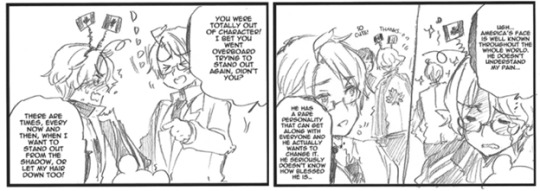
He’s also pretty passive aggressive. In one strip about his relationship with Russia, fittingly titled “What’s going on Behind Those Smiles...?!”, America and Russia insist their bad relationship is ancient history (even though the Cold War lasted until relatively pretty recently - ending in 1991 with the dissolvement of the USSR) only to follow up with a lot of stuff that contradicts that claim. First, Russia says he wanted to “squeeze and snap” America in the past and America, acting like his usual cheerful stuff, actually challenges him to give it a try. Russia then starts talking about all the reasons he hated America in the first place before admitting he still wants to smash America’s glasses into pieces. Then, he and America (who heard all of that) go back to cheerfully insisting their relationship isn’t that bad.

To make things clear, this isn’t to say that everything we usually get from America (that being his cheerful personality) is an example of him being dishonest. In a lot of ways that would take too long to go through here, he’s actually unapologetically himself. But there’s some clear discomfort when it comes to things like affection, opening up about his insecurities, and directly addressing negativity - whether that negativity be from others or himself.
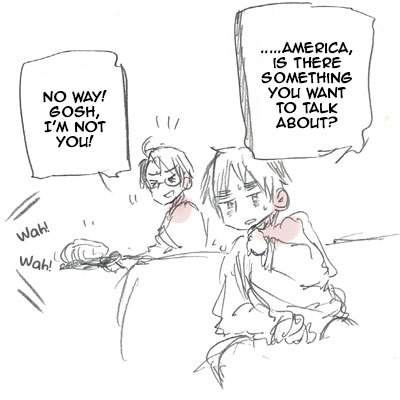
Why?
I think there’s two potential reasons for why he’s written this way. One is a real life explanation. Some of America’s characteristics mirror behaviors of real Americans being polite.
Maybe the best example of this is the frequent smiling. In the United States, instead of smiling being an indication of genuine happy feelings, it’s often just the polite thing to do. There’s also the fact that even though that kind of friendliness has been normalized as the polite way to act, Americans don’t care for being touched and like personal space more than what you’d see in many other countries.
It’s possible those cultural norms made Hima want America to have similar contradictory behavior. He’s friendly and cheerful to an overwhelming extent, but he keeps the people closest to him at a distance and he keeps up his happy-go-lucky attitude even when that’s not actually how he’s feeling.
The reasoning in Hetalia itself likely comes from his colonial days and the Revolution that followed. He didn’t get to socialize a lot as a kid. His most significant relationship was with a mentor that lived across an ocean and was mostly not around. So it’s not surprising America is lacking in social skills like resolving conflicts and dealing with negative emotions towards and from others. Those aren’t things you can learn from burying yourself in books on politics.
But why does it sometimes feel like he’s almost deliberately pushing other characters away in some instances?
America probably is deliberately pushing those characters away. Again, his most significant relationship as a kid was with a distant mentor that, because of his own shortcomings with other people, was emotionally invested in his relationship with America to an overwhelming extent. And to say it ended poorly would be an understatement. Things got violent, his relationship with Canada soured as well, and many nights after the conflict were spent with no sleep and him worrying over how to fix things with England. America gave up a lot for Independence, including being able to rely on the two most important people in his life - nearly the only people in his life - as people that would be there for him. And throughout all of that, there was probably a point where his relationship with England seemed like it might be beyond repair. This kind of stuff leaves a lasting impact on a person, especially someone as young and inexperienced with people as America was.
Even though America wants the company and friendship of others, he’s handling things in a way that maximizes how comfortable and safe he feels in these relationships. He’ll pick England to dress up with for Halloween, but only if he can get England to think he was picked for an insignificant reason like being his first Twitter follower. This keeps a distance between the two that keeps America feeling safe from once again experiencing the pain he endured from prior experiences. But not being understood by even those closest to you is a very lonely experience and as a result, America finds himself in a tough position of trying to alleviate his loneliness with loud, attention-seeking behavior while never making much of an effort to deepen the friendships he has or even actively sabotaging the efforts of the other person who is trying.
#hetalia#aph america#hws america#aph england#hws england#aph canada#hws canada#aph russia#hws russia
568 notes
·
View notes
Photo
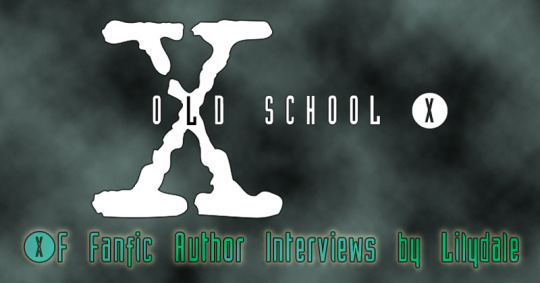
Old School X is a project interviewing X-Files fanfic authors who were posting fic during the original run of the show. New interviews are posted every Tuesday.
Interview with Audrey Roget
Audrey Roget has 10 fics at Gossamer, with some different ones at AO3, fanfiction.net, and her website. You might know her from her very good fics or as part of Musea, a collective that all wrote fic and posted X-Files fic recs. I’ve recced some of my favorites of her stories here before, including Three Times Dana Scully Didn’t Go to San Diego for Christmas and The Shirt. Big thanks to Audrey for doing this interview.
Does it surprise you that people are still interested in reading your X-Files fanfics and others that were posted during the original run of the show (1993-2002)?
A little, yes. Not so much by folks who were around in those days. I sometimes go hunting for beloved stories from the early years, both those I read and loved, and those I never got around to. I am always delighted to hear that later generations of fans have stumbled across my stuff, especially since I haven’t posted anything new in a number of years. It’s fantastic that both years-long fans and new ones are out there continuing to rec fic from all eras, and to maintain archives for fans yet-to-be born.
What do you think of when you think about your X-Files fandom experience? What did you take away from it? What did you take away from your experience with X-Files fic or with the fandom in general?
It may sound corny, but the main thing I think of, and the thing that has ultimately been most valuable and lasting, has been the friendships. The feeling of having found a tribe – not just of TXF fans, but of other people who could be as enthusiastically engaged as I was (if not more so) with fictional stories and characters – was mind-blowing. Since I was a kid, I had often mulled over the books/movies/TV I loved and speculated internally about what happened off the page or off-screen, or created new stories for characters in my head. But, except for an elementary school phase where I and my two BFFs regularly played Charlie’s Angels, I hadn’t engaged in that kind of gleeful immersion in a fictional world with others until TXF fandom. My involvement in fandom followed pretty quickly from getting hooked on the show, so for me, it’s all one big ball of experiences. Even as my interest in/involvement in fandom has waxed and waned over the years, I’ve been lucky to remain friends with wonderful people who I originally connected with as fellow fans.
Social media didn't really exist during the show's original run. How were you most involved with the X-Files online (atxc, message board, email mailing list, etc.)? What got you involved with X-Files fanfic?
My initial entrée to the fandom was through fanfiction. I didn’t get interested in the show until mid-season 5. Around the same time, I read an article in a zine called Might (co-founded by Dave Eggers) about this thing called fanfiction that people would write and publish online. At first I thought it was satire or a joke – the fic cited involved Wilma Flintstone and a polished sabre tooth, as I recall – but then realized this was an actual thing. So I figured that a show then at the peak of pop culture must have fanfiction, and I went looking. Early on, I scrolled atxc on a daily basis and downloaded stories. But I didn’t engage in discussions about the show on Usenet, since I only knew how to access it with my Earthlink email client, and I didn’t want to post using my real name.
Later, I set up a pseud address with Yahoo and subscribed to a couple of email fanfic/discussion lists, and stayed subscribed to those for years. There was also a period in there somewhere – of maybe only a year or so, when I think about it – when I’d often nerd out into the wee hours with other fans via IM chat groups. That was around the time the small writers’ collective Musea was founded, and we were active for several years after the show’s initial run. In the early aughts, I followed many authors to LiveJournal and eventually set up my own account and stayed involved in fandom that way, until it mostly dispersed as well.
What was it that got you hooked on the X-Files as a show?
In a word: Chemistry. I had casually watched a couple of episodes during the first four seasons, but I’m not a huge sci-fi/horror fan at heart, and the story lines didn’t immediately grab me. But I happened to tune into The Red and the Black in 1998, and BOOM. For the first time, the intense layers of emotion and attraction between Mulder and Scully really struck me – and then of course, upon further viewing, I realized it was unmissable, an essential element in the fabric of the show. As a wise woman once said, a switch had been flicked. Mulder and Scully’s magnetism was like nothing I’d ever seen, and though I eventually came to appreciate the storytelling, humor, production values, and other components that made the series so successful, watching those characters interact has always been what kept me coming back.
Were you involved with any fandoms after the X-Files? If so, what was it like compared to X-Files?
I was part of a list-serv discussion group for The West Wing for a while, which was a fun melding of character and plot analysis with political discussion. Later, I got into the House, MD fandom, again mostly as a fanfic reader/writer. I was finding that other fandoms, unlike TXF, were more dispersed, the networks of people structured more loosely, if at all. There were fanfic and discussion communities on LiveJournal, and fanfiction.net was the other main hub for posting and reading, but if there was anything centralized like Gossamer, Ephemeral, or the Haven, I never found it. Within all those fan communities, as in TXF, there were partisans for various characters and pairings, and flame wars erupted over plot developments that outraged this faction or that. One main difference was that those other shows had larger, ensemble casts and more varied subplots. So on one hand, there was more opportunity to explore back stories and multiple perspectives. In House MD in particular, there were several entrenched rival shipper camps, which were about equally grounded in canon, rather than TXF’s central ship. I was less into TWW fic, but my impression was that readers were less militant about their pairing preferences than TXF or House fans.
Who are some of your favorite fictional characters? Why?
I was deeply fascinated by Greg House for several years. (And the love-hate chemistry between him and Lisa Cuddy was a strong draw for me.) House MD came early in a wave of TV shows centered on anti-heroes, and Hugh Laurie brought amazing complexity and thoughtfulness to the character.
Philip and Elizabeth Jennings (The Americans) are a lethal pair of antiheroes. The inherent moral conflict of a sympathetic narrative from their POVs, and the global political conflict they embody was TV catnip for me. The internal struggles at the hearts of those characters were so exquisitely written and performed, they completely fascinate me.
The West Wing felt so much like a show created specifically for me. I’m especially fond of story arcs and scenes that centered on CJ Cregg, Charlie Young, and Josh Lyman. Though I loved Martin Sheen’s human portrayal of Jed Bartlet, the fact that he was the President always made him a little untouchable in my mind. But CJ, Charlie, and Josh were basically hard-working functionaries who were ambitious and idealistic and funny and flawed, and they spoke to me.
What is your relationship like now to X-Files fandom? Do you ever still watch The X-Files or think about Mulder and Scully? Do you ever still read X-Files fic? Fic in another fandom?
I do continue to think about Mulder and Scully and watch episodes somewhat often. I’ll sometimes run a favorite episode as background when I want something comforting on. I read TXF fic pretty regularly, which can inspire me to go back and watch a particular episode or story arc I haven’t thought about in years. Just recently, I started listening to The X-Files Diaries podcast (@XFDPodcast, @admiralty-xfd), and that’s a fun dive into the characters, and how other fans react to and interpret episodes.
Every once in a while, a TV show or movie – and more particularly, the characters – will grab my attention and make me curious about how fanfic writers have interpreted the original material. Random example, I saw Singin’ in the Rain for the first time in a theatre a couple of years ago, and the chemistry of the three leads sent me to AO3 as soon as I got home. I also loved the first season of Mercy Street and found some well-done stories in that fandom. I usually peruse the Yuletide gifts every year and have been amazed by the sheer variety, creativity and cheekiness of the output. There are a bunch of other shows I’ve followed faithfully, and sought out fanfic – Broadchurch, The Killing, Agents of SHIELD, Elementary, The Good Wife. Although I’ve found some well-written stuff in those fandoms, I’ve rarely gotten the same charge from them as reading TXF fic.
Do you have any favorite X-Files fanfic stories or authors?
syntax6 (@syntax6) – Universal Invariants/Laws of Motion. I’d also shout out to syn’s Hunter fics, too – well worth reading even for those who have never seen or particularly loved the show itself.
JET – I re-read Small Lives Awake every year around Thanksgiving time. Other annual holiday re-reads: Revely’s The Dreaming Sea and Jordan’s Through the Fire (both set at Halloween).
Amal Nahurriyeh’s Casey universe – the rare post-col fic that felt hopeful, made extra intriguing by a kick-ass original character. [Lilydale note: the series starts with Machines of Freedom and has lots of additional fics and snippets.]
Prufrock’s Love – Finding Rokovoko was genuinely terrifying and tender.
melforbes (@melforbes) – Seaglass Blue is a recent favorite, lyrical and bittersweet.
These are just a few (apologies to those that didn’t come to mind immediately). Fortunately for readers, there’s an astonishing number of authors who have written in TXF fandom whom you can depend on for a good yarn, insightful character study, and/or ingenious “fixes” where 1013 went awry.
What is your favorite of your own fics, X-Files and/or otherwise?
Probably the two set in my own (former) backyard of Southern California: Enivrez-vous and Ravenous. I’d first read the Baudelaire poem that was the source of the former’s title back in university days, so I was tickled to be able to use a few lines as an epigraph.
Do you think you'll ever write another X-Files story? Or dust off and post an oldie that for whatever reason never made it online?
It’s not out of the realm possibility. I’d meant for “Three Times Dana Scully Didn’t Go to San Diego for Christmas” to be followed up with “And One Time She Did.” In fact, the idea for that never-finished story was what inspired “Three Times” in the first place. I have a couple of scenes sketched out and – unusually for me – even know exactly how to end it. Every year, November rolls around, and I think I should finish and post it…maybe in 2021?
Where do you get ideas for stories?
Sometimes it’s from my environment. “Enivrez-vous” and “Ravenous” describe places that I’m fond of, that made me want to place Mulder and Scully there. “What Not to Wear” has that element too – I set it in Memphis as a tribute to a great trip there with a sister Musean. But WNTW was also inspired by a kink challenge in a years-ago LiveJournal thread, so sometimes ideas come from fandom discussions or even other fanfics. In the House MD fandom, a fic by another writer made me want to continue the story, and the author kindly allowed an authorized sequel.
What's the story behind your pen name?
I wanted my pseudonym to sound like it could be a real person’s name – or at least, maybe like a romance writer’s pen name – rather than an online handle. I also wanted to use a slightly obscure fictional character, to amuse anyone in the know. I had long had a bit of an obsession with Whit Stillman’s 1990s film trilogy, which started with Metropolitan; the 3rd installment, Last Days of Disco, came out the same year I started down the TXF rabbit hole: 1998. The central heroine of Metropolitan – who is mentioned in or makes a cameo in the other two – is Audrey Rouget, a lover of Austen and, eventually, a book editor. I altered the spelling of the last name as a nod to every writer’s companion, Roget’s Thesaurus.
Do your friends and family know about your fic and, if so, what have been their reactions?
I have a few close friends – from outside TXF fandom – who know that I’ve written fanfic. I don’t know if they know my pseud; if they do, or if they’ve ready any of the fic, they haven’t said so to me. They are fannish sorts themselves, but not really TXF fans. A smattering of other friends and family members know or could intuit that I’ve been a fangrl on some level for years. My boss, whom I’ve known for about 3 years, recently mentioned off-handedly that she was really obsessed with TXF “back in the day,” and I am DYING to know if she got involved in fandom, but don’t think I’ll ever work up the courage to ask.
Is there a place online (tumblr, twitter, AO3, etc.) where people can find you and/or your stories now?
Most of the X-Files stuff continues to be generously and steadfastly archived by Forte at The Basement Office. The House MD stories and some TXF things are at fanfiction.net; same for AO3. If ever post anything new, it will probably go to TBO and AO3. I really ought to get it all together in one place, one of these days…
(Posted by Lilydale on April 6, 2021)
74 notes
·
View notes
Text
It’s all religion, and it’s all profane

Over the past few days I have delved, rather pointlessly, into the messy scenery of the UK’s ongoing gender wars. My interest was equal parts morbid and academic. I hoped to answer two questions. First, why is the back-and-forth between trans rights advocates and gender critical feminists so vicious in the UK, culminating not just in the threats and recriminations found in the war’s American iteration, but in women being blackmailed and even arrested.
The second question is why is it even happening? That is, why is the UK in particular a hotbed for an ideological war of this type among liberal-identifying people, while in the US the feminist movement has accepted trans ideology more or less uniformly and with minimal pushback. My first inclination was that it was a matter of professional survival. Perhaps academic jobs aren’t as precarious in the UK, meaning that it’s somewhat safer for people to issue heterodox opinions. But, again, the viciousness of the first question seems to rebut my assumption in regards to the second. Losing your job is bad, but going to prison is worse.
Of course, I found no clear answer to either question. UK academe is utterly unknowable to an American who’s never experienced it. I found out what “O Levels” means but after that I got kind of lost. As much as a shitty lie our myth of academic meritocracy might be, the UK makes us look like a Dutch Montessori school run by doctrinaire Quakers. If your first name isn’t proceeded by Lord, Lady, or Sir, or if you don’t have a number after your name that’s at least as high as The Fourth, there’s not much of a chance you’re going to get yourself a gig within Oxbridge.
So I delved into the viciousness, and oh boy did I get what I was looking for. The English are renowned for their dry, cutting humor, but that’s because only the best of the best come into the American purview. The majority of pedestrian UK humor is a sort of sarcasm without jokes. Like, let’s say you brought home a sausage pizza. I asked you what the topping was and you said “It’s pepperoni, mate.” And then you opened it up and it was sausage and that made me confused and slightly pissed. That’s the extent of the comedic ability of your average Brit.
The fights, meanwhile, are more direct and blunt, really a sight to behold. Again, there’s no attempts at humor, which tend to accompany the verbal conflicts of Americans. When Americans fight, we’re usually doing it to try and get the people around us to think we’re cool. When UK people fight, they just want to hurt the other person.
Of course, there’s much in common between the US and UK iterations of gender discourse. Minor disagreements are regarded as violence, hyperbolic overstatements of harm are routine, and person who uses terminology that was considered progressive up until very recently can find themself labeled a Nazi for not making linguistic adjustments quickly enough. But it’s still somehow even more rancorous in the UK. You get a sense that they’re not in it just for online clout but out of a desire to cause real, physical harm to members of the other side.
One of the more salient aspects of UK arguments is how their insults will often consist of a simple description of a person. Sometimes you’ll get “fat” or “snaggle toothed” or something most of us would consider mean. But other times it’s like “you blonde cunt” or “you working class shite” or something else that us Americans would never regard as an insult. Mentions of religion are surprisingly common. They say “you Catholic bigot” as opposed to “you bigot,” or “you deranged Protestant” instead of “you freak.”
This really struck me. You’d never, ever see that in America. Firstly because it’s taboo (unless it’s a Republican talking about Muslims). Secondly, because we simply do not care. Your average religious American cannot articulate any meaningful difference between Catholics and Protestants. We have no need to, because as much as we love Jesus we don’t bother with any of the messy parts of religion, such as having a faint understanding of the faiths we claim to adhere to.
This, I have always felt, is the greatest folly of New Atheism. What are you gonna do, present a scientific case demonstrating the absurdity of the creation myth? You gonna stick solely to the bible and highlight its multiple hypocrisies and contradictions? What is that gonna achieve? These people had Donald Trump autograph their bibles. They think salvation can be purchased by giving 20% of their paychecks to millionaires who preach in stadiums. There’s nothing an outsider can do to profane their religion that’s more obscene than the manner in which they practice it.
(I recall a time in my mid-teens when I attempted to “A-ha!” a youth pastor with my knowledge of the story of Jephthah from the Book of Judges, who committed yahweh-approved ritualistic sacrifice of his eldest daughter. In response, the pastor informed me that he hadn’t read that part of the bible, and that his relationship with Jesus was more about the feelings it gave him than some words written down in an old book. Needless to say, he won the argument.)
The UK is, even now, broadly to the left of the US in regards to their social safety net and most cultural matters (this is a low bar, for sure, but they do clear it). Perhaps people who us Americans would identify as liberal (in that they don’t openly want to murder poor people; they’ll often still do it, but they won’t giggle while doing it) aren’t as ideologically siloed over there. The Democratic party is, after all, an unworkable mishmash of a few dozen different concerns, and their basic strategy since the Clinton era has been to blame the incompatibility of those concerns for the fact that their governance is indistinguishable from that of the GOP.
An American liberal therefore doesn’t focus on piddling things like principles or ideals or even whether or not a policy they support does the exact opposite of what it’s supposed to achieve. Paying too close attention to the workings of our coalition will reveal its manifest contradictions, which will in turn weaken it, and if gets too weak then we’ll once again have an evil fascist doing the exact same stuff that a good and honorable man like Joe Biden is presently doing. Instead, we must understand politics as a means of achieving self-actualization through the process of deferring our concerns to others. Those concerns are not addressed within the present system, no, and neither are our own, but worrying about cause and effect and results is not the point. It’s much more important to exist, to validate, and to listen.
In the UK, politics is still understood as politics. It is a means of gaining and exercising power. In the US, politics falls eerily in line with our profane understanding of what religious devotion entails: an acontextual, borderline illiterate expression of ourselves, which we have been trained to believe connects us to some kind of higher power that unifies us as humans by calcifying our utter disconnectedness from one another.
And so maybe that’s the difference? In the UK, people are delusional enough to think that politics is entered into by people who have something to gain or lose. In the US, it’s all about vibes.
10 notes
·
View notes
Text
A Critical Essay on the Life & Poetry of William Wordsworth
With respect to 'The Prelude' & the 'Lyrical Ballads'

Portrait of the English Romantic poet William Wordsworth by Benjamin Haydon.
"You have given me praise for having reflected faithfully in my poems the feelings of human nature. I would fain hope that I have done so.
But a great poet ought to do more than this; he ought, to a certain degree, to rectify men’s feelings, to give them new compositions of feeling, to render their feelings more sane, pure, and permanent; in short, more consonant to Nature, that is, to eternal Nature, and the great moving spirit of things."
Wordsworth wrote this in a letter, in response, to his friend, John Wilson on the 7th of June 1802, thanking him for his heartiest congratulations on the success of his Lyrical Ballads and in the process reflected on the ideas of his poetical abilities and ambitions. Indeed, Wordsworth was a poet far ahead of his times, creating over the span of eighty years a colossal magnitude of poetic works which have become a part of the very fabric of the English language and literature.
Like many of his contemporaries, Wordsworth was influenced acutely by the historic event of the French Revolution, of which he was not only an observer but an active participant and supporter. But before delving too deep into his works and genius we must understand something about his life and childhood, without which, one cannot think of understanding his poetry let alone Wordsworth himself.

Young Wordsworth in 1798, in Town End, Grasmere.
WILLIAM WORDSWORTH was born in the Lake District in April 1770 and died there eighty years later on 23 April 1850. He had three brothers and a sister, Dorothy, to whom throughout his life he was especially close. When she was six and he was nearly eight, their mother died. Dorothy was sent away to be brought up by relatives and a year later William was sent to Hawkshead Grammar School.
Wordsworth was cared for in lodgings and led a life of exceptional freedom, roving over the fells that surrounded the village. The death of his father broke in on this happiness when he was thirteen, but did not halt the education through nature that complemented his Hawkshead studies and became the theme of his poetry.
As an undergraduate at Cambridge, Wordsworth traveled (experiencing the French Revolution at first hand) and wrote poetry. His twenties were spent as a wanderer, in France, Switzerland, Wales, London, the Lakes, Dorset, and Germany. In France, he fathered a child whom he did not meet until she was nine because of the War.
In 1794 he was reunited with Dorothy and met Coleridge, with whom he published Lyrical Ballads in 1798, and to whom he addressed The Prelude, his epic study of human consciousness. In the last days of the century, Wordsworth and Dorothy found a settled home at Dove Cottage, Grasmere. Here Wordsworth wrote much of his best-loved poetry, and Dorothy her famous Journals.
In 1802 Wordsworth married Dorothy’s closest friend, Mary Hutchinson. Gradually he established himself as the great poet of his age, a turning-point coming with the collected edition of 1815. From 1813 Wordsworth and his family lived at Rydal Mount in the neighboring valley to Grasmere. In 1843 he became the poet laureate.

A recent cover page of the 'Lyrical Ballads' by Wordsworth & Coleridge, which heralded the Romantic Age in English Literature.
Now, keeping this dynamic canvas of Wordsworth’s life in consciousness can begin to grasp the magnitude of his poetic genius. To begin with, we can say Wordsworth was a game-changer in the history of English poetry. By publishing, his epoch-making collection of poems, Lyrical Ballads, Wordsworth along with Coleridge heralded the Romantic Age of English poetry. On which Coleridge writes in chapter 14 of his book, Biographia Literaria, about Wordsworth and his romantic ideas thus:
"Mr. Wordsworth, on the other hand, was to propose to himself as his object, to give the charm of novelty to things of every day, and to excite a feeling analogous to the supernatural, by awakening the mind’s attention to the lethargy of custom, and directing it to the loveliness and the wonders of the world before us; an inexhaustible treasure, but for which, in consequence of the film of familiarity and selfish solicitude, we have eyes, yet see not, ears that hear not, and hearts that neither feel nor understand."
-Coleridge on Wordsworth, Biographia Literaria
And so we see that Wordsworth did exhibit all these themes and ideas repeatedly in his entire works. He takes as his subjects the poor, the old, and the outcast, for example in the poems ‘Goody Blake and Harry Gill’, Wordsworth talks about an old woman who has to steal firewood to survive the winter. His poem, ‘Her Eyes Are Wild’, about a vagrant woman suckling her child:
Suck, little babe, oh suck again,
It cools my blood, it cools my brain,
Thy lips I feel them, baby, they
Draw from my heart the pain away.
-from ‘Her Eyes Are Wild’
In ‘The Old Cumberland Beggar’, a beggar sits among ‘wild empty hills’ eating, and his ‘palsied hands’ scatter crumbs while the ‘small mountain birds’ surround him, waiting warily for their ‘destined meal’. In the popular poem, ‘The Idiot Boy’ a poor countrywoman, Betty Foy, is the mother of a disabled son who gets lost and spends a night in the open air. When she finds him he speaks wonderingly of the owls and the moon, without realizing what they are.
This was a major breakthrough in English poetry as Wordsworth brought to the poetic arena, the lives of the common people and this was huge because no one had ever made such people a subject of their poems before. Also new in Lyrical Ballads are poems about children and how adults fail to understand them.
In the poem, ‘Anecdote for Fathers’, a boy resists adult logic, and in ‘We Are Seven’, a small girl, whose brother has died, insists that he still counts as one of the family. Wordsworth’s belief in the superiority of childhood is expressed most challengingly in the ‘Immortality Ode’ written in 1802, where he remembers his early years.
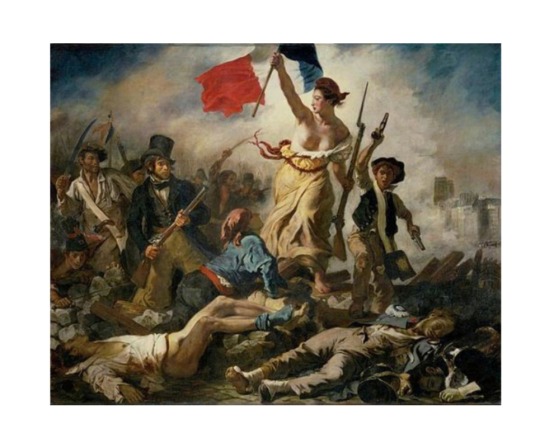
A painting of the French Revolution of 1789, which ousted monarchy from France and had a big impact on Wordsworth and many intellectuals.
Through his selected works, written after the experiences of the French Revolution, one also comes to feel the sympathetic nature of Wordsworth towards the lowly and the poor. Like in The Prelude, he recalls, how a revolutionary friend pointed to an emaciated girl they met on a walk and declared:
'Tis against that
That we are fighting
In the ‘Residence in London’ book of the same poem, he remembers seeing a poor man with a sick child in his arms, and writes:
Bending over it,
As if he were afraid both of the sun,
And of the air which he had come to seek,
Eyed the poor babe with love unutterable
As for expressing the moods and settings of nature, Wordsworth is the unquestioned master, often and aptly called by many to be the poet of nature. One can even argue that no English poet expresses nature in its innate sensual beauty and spiritual entirety as Wordsworth.
What’s more interesting in Wordsworth’s portrayal of nature is that for him Nature is not just Mother Earth that needs to be expressed and captured in words but is much more than that. Like in the poem ‘Lines Written in Early Spring’, included in Lyrical Ballads, Wordsworth expresses the belief that nature is conscious as he writes:
'Tis my faith that every flower
Enjoys the air it breathes.’
Or the core Romantic belief that nature is a moral educator is stated with breath-taking simplicity in another Lyrical Ballads poem, ‘The Tables Turned’ where he writes:
One impulse from a vernal wood,
May teach you more of man,
Of moral evil and of good,
Than all the sages can.
In this regard one remembers a famous passage from The Prelude which gives an instance of Wordsworth expressing, nature acting as a moral guardian. The passage is about one summer evening when young Wordsworth takes a boat without its owner’s permission, and as he rows, he expresses:-
A huge peak, black and huge,
As if with voluntary power instinct,
Up reared its head
It seems to stride after him and, trembling, he returns the boat to where he found it. Even when not guilt-ridden, the boy Wordsworth in The Prelude is aware of nature as a living presence:
I heard among the solitary hills
Low breathings coming after me and sounds
Of indistinguishable motion, steps
Almost as silent as the turf they trod.
On Wordsworth’s poetic oeuvre, Walter Pater, a critic of Wordsworth’s time comments in his essay titled- Appreciations (1889) that Wordsworth to be the poet of ‘impassioned contemplation’ and in stressing both words equally, he got the balance exactly right. In his attempts to characterize the nature of the poetic or creative power, Wordsworth laid similar emphasis on impassioned seeing.
Perhaps, one can say, that the best encapsulation of Wordsworth's entire creative output has been written by none other than Wordsworth himself in the poem, ‘Glad sight wherever new with old’, written in 1842 when he was seventy-two. This poem points to almost everything that has been central to his long imaginative engagement with words and things. Wordsworth in it writes:
Glad sight wherever new with old
is joined through some dear home born tie;
The life of all that we behold
Depends upon that mystery.
Vain is the glory of the sky,
the beauty vain of field and grove
Unless, while with admiring eye
We gaze, we also learn to love.
Image Credits:- Pinterest & Google
References & Research:-
The Concise History of English literature by William Henry Hudson
The Routledge history of English literature
The Routledge Anthology of Poets on Poets
A little history of Poetry by John Carey
JASTOR Essays
Follow Me On Instagram
instagram
Up Next
Wanna Read More
#art#criticism#william wordsworth#dorothy#literature#poetry#love poem#artwork#essays#english homework#photography#books & libraries#naturepoems#romanticism#Instagram#english lit student#literary criticism#romantic quotes#romantic poetry#hopeful romantic#samuel taylor coleridge#penguin classics#ballad#lyric headers#lyric aesthetics#portrait#country music#english#buy online essays#essay paper writing services
17 notes
·
View notes
Text
Day 7 - Domestic
The moment you feel at home is when you start decorating the house. Dean had been repeating this to Sam ever since they had officially established their headquarters in the Men of Letters bunker. First of all, he began by displaying his favorite weapons in his room: his sawed-off shotgun, the machete he had made in Purgatory, a grenade launcher, his father’s fighting knives, his first stake… Quickly, the souvenir albums had left Baby’s trunk to weigh down the drawers of his bedside table.
Sam ended up imitating him by putting his clothes in the closet first, then his computer pouch in the desk, and finally he ended up storing countless books and tapes in boxes by his bed. Dean had obviously taken over the kitchen as quickly as possible and built his famous "Dean Cave" while Sam could spend whole nights devouring every book in the library or archives.
Castiel had also inherited a room — although it was rarely occupied — and was particularly fond of the calm of the infirmary, watching over one of the two brothers when necessary. Jack, for his part, was in the only house he had ever known and cherished every wall in this underground lair.
However, everyone agreed that the refrigerator was undoubtedly their favorite part of the bunker. The Men of Letters' was not a simple American fridge with two doors, nor even a fridge with a minibar option. No, their refrigerator was absolutely gigantic, with several doors dug directly into the wall and at least two meters of metal in width.
Of course, the food gets everybody to agree —especially when Dean felt like making his own handmade burgers— but that wasn’t the only reason this family was particularly fond of the fridge. It was not so much what was in it that found grace in their eyes, but what was on it.
The first person to hang anything on it was Sam. Tired of having to repeat to his brother to buy vegetables, he had then written a precise shopping list before hanging it with a magnet on the door containing the beers, certain that Dean would fall face to face with it before the end of the day. In response, Dean had hung another post-it on a lower door saying, "Here, rabbit man."
Soon after, Jack felt confident enough to hang one of his drawings, then another. Castiel had happily added the menu of this Chinese restaurant on the outskirts of Lebanon where the Winchesters loved to order after finishing a case. Dean had pinned a few handwritten recipes and Sam was again the first to put a picture of the four of them in the library, playing board games. Months later, Dean solemnly hung his wedding announcement with Castiel below the date of their first kiss, lovingly scribbled on a piece of paper. Little by little, the fridge was filled with memories and post-it notes, a fresco of their lives spread out among the gates of the metal surface.
It was past midnight when Sam decided to have a pick-me-up to continue his search among the archives. He proceeded as usual to his reserved part of the refrigerator when a bright yellow post-it attracted his attention. He knew every photo on this fridge so well that the slightest new element was now popping into his eyes and he came closer to read what it was saying.
"I’m sorry. Can we talk?"
It was definitely Dean’s handwriting. Sam frowned, the cogs of his brain creaking in his head. He hadn’t had a fight with his brother recently, it was barely if he’d seen him for the last two days. Jack had been on vacation with Jody since the beginning of the week and Castiel had left the bunker for… oh.
Dean and Castiel had a fight five days ago. Sam had not really understood the reason for the argument, the two of them shouting at each other behind closed doors before they remained silent for hours. This was the reason why Dean had been locked up in his room since Tuesday and that Castiel only came back from time to time to wander like a lost soul before leaving for an indefinite period. This message was therefore not addressed to him, Sam realized. It was a cry for help from his brother to Castiel. Although the angel did not need to drink or eat, it was true that he particularly liked to look at the refrigerator whenever he could as a reminder of why he called this place "his home".
Sam pinched his lips and decided not to interfere. It was something between his brother and his best friend and he would be there if they asked him for support, but not before. Although troubled, Sam grabbed a beer and a few cherry tomatoes before leaving the kitchen.
To his surprise, the first post-it did not stay on the refrigerator very long. The following day he had been replaced by a note written with much more careful writing despite the austerity of the words.
"You said everything you had to say and so did I."
A cold anger sweated in Castiel’s words. Sam was still in the kitchen when Dean made his entrance, heading for the food first as usual. He was also present when his brother’s eyes fell on the note and he froze to read it in silence. A few seconds later, Dean unpinned the post-it before wrinkling it and throwing it in the trash. He returned to his room without even getting the breakfast he had come to fetch.
"I’m an idiot. Please pick up your phone." Said the following note three days later accompanied by a photo of Dean and Castiel wearing reindeer antennas for Christmas that they had celebrated with family two years earlier. Sam recognized Dean’s trembling hand behind every word.
Sam soon found himself opening the refrigerator more often than usual simply to find out how his brother and Castiel were progressing in their fight, worried about each one of them. Dean was still as silent as a tomb about it and he hadn’t seen Castiel for a week now. Whatever happened between them, it was by far the longest argument the couple has had to date.
Dean’s last note remained unanswered.
When Sam opened the fridge door one morning to take milk, the post-it had been replaced by another still written by Dean.
"Sorry Seems to Be the Hardest Word, Elton John"
Sam could not help a small smile from appearing on his face. Dean had always been more gifted with music than words, but the mere fact that he chose Elton John showed something fragile and sincere. Sam hoped Castiel would get the hint. Just below this post-it was pinned a photo of their fingers intertwined, the bright wedding rings to their fingers, as well as a large black feather.
Indeed, the next day, Dean’s note was still there, but this time accompanied by a second piece of paper with an address.
"716 E Montana Ave, 1312, Baker. Room 17. You’re the One that I Want, Grease."
Not more than an hour later, Dean had gathered his belongings and was already finding an excuse to Sam when this one cut him off. They exchanged a look which they alone knew the secret before Dean nodded and fondly patted his shoulder. The next minute, the Impala’s engine was growling in the garage before moving away, leaving Sam free to go and have breakfast with Jack in the kitchen.
When Dean returned two days later, it was with Castiel next to him and a weight off their shoulders. Sam sent them a simple, gentle smile before going to hug his brother and Castiel. When he got up to bring them beers, he noticed that the post-its had not left the refrigerator. However, no one ever removed them afterwards.
The family simply added other memories as life slowly resumed in the bunker.
* * *
@winchester-reload
Hi! Here’s a short one for today with my favorite couple. Please, let me know if you enjoyed it!
You can find the whole series on Ao3
Tag list
/!\ PLEASE TELL ME IF YOU WANT TO BE ADD TO (or removed from) THE TAG LIST so you won’t miss any updates.
@misha-moose-dean-burger-lover @styggtroll @thanks-tacos @petrichoravellichor @iamcharliebradburylevelperfect @ladywaywarddsc @hellfire37 @destiel-221b-sabriel @aloha-cowgirl @destielhoneybee @dysfunctional-destiel @ozonecologne @doofcas @castielrisingabove @zoerayne2426 @tibbinswrites @vicmc624 @thegirlofstarlight @berrieseveryday @staycejo1 @certaindeanwinchesterforcastiel @bab-spnfamily @lo-mindpalace
#suptober20#day 7#Destiel#suptober2020#suptober#inkotber2020#Inktober#supernatural#Supernatural fanfic#supernatural fanfiction#Destiel fanfic#destiel fanfiction#established destiel#dean x castiel#deancas#casdean#married dean and castiel#domestic relation#supportive sam winchester#sam winchester#jack kline#sam pov#emotionally hurt dean#emotionally hurt castiel#making up#emotional h/c#destiel hurt comfort#light angst#happy ending
69 notes
·
View notes
Text
“Orientalia”: White Fascination and Nostalgia for China and the Orient
4/11/2021
Denver, CO
CW: Racism, anti-Asian and anti-Chinese sentiment, violence/sexual assault
Preface:
Today was certainly a day. I’ve been on a cross country trek, which I’ve come to call “The Great Journey East”, where I’m driving from my home in the Seattle area to Portland, Maine to ply my usual trade, working aboard some traditionally rigged sailing vessels that operate from the Maine State Pier. I’ve most recently arrived in Denver, CO, after a tumultuous night of camping in un-ideal circumstances on the shores of Great Salt Lake in Utah. I decided to treat myself to a middling hotel downtown to try to affect an aura of urban tranquility before I head out for Wichita in the morning, and then on to see my mother’s family in Oklahoma. The drive thus far has been marked by astounding natural beauty, kind people, and a long series of audio books that I’ve only just begun to make a dent in. I began this journey listening to “Tribe” by Sebastian Junger, which I found to be extremely interesting and helped some of my own understanding of how society today does not serve the community, and how we may one day return to a society where the people come first, as opposed to the individual. After finishing Mr Junger’s audiobook, I turned my ears to a tome that I have put off reading for a long time: “The Chinese in America: A Narrative History” by Iris Chang.
Listening to this audiobook over the last few days, which begins in Qing dynasty China and ends in the modern day, I can say a great many things. I can say that I deeply feel the experiences that were collected by the author and compiled into this book, not only on an intellectual and emotional level, but on a spiritual level. I can say that, despite years of my own research into my familial experiences and the experiences of contemporary Chinese Americans, my level of knowledge was severely lacking, even though I considered myself to be a relatively robust lay-scholar on the topic. I can say that the experience of we Chinese Americans, foreign and natural born, has changed very little in our time here. While circumstances change from person to person, family to family, and era to era, we are all bound together in trends that have haunted our communities, not unlike the tigers that have stalked southeast Asia for time immemorial, striking out when least expected.
All of that, however, is a surface level understanding. Those realities are the first few layers of a complicated and long history of horrific, violent, brutal, and inhuman oppression in the United States.
I began this audiobook believing that I knew most of what I needed, enough to enlighten the odd person in online discourse, or conversation over dinner. Enough to tell-off the casual bigot that accused me and other Chinese people of overblowing our racial, social, and economic anxieties while making them look a fool. I realized very quickly that while I was not wrong in my knowledge, my staunchly anti-racist rhetoric, or my suspicious attitudes towards the US government and law enforcement, I was missing so much of the story. I was not missing the statistics or the legislative history: I was missing word-to-paper stories of my ancestors -- our ancestors -- and the cold, hard, and hellacious reality that they faced when they got here. These realities may have differed from generation to generation (the Chinese washer-man and washer-woman, miner, and restaurateur of the 19th century was faced with markedly different circumstances from the Chinese who fled WWII, the PRC, or settled in other areas of the world during the diaspora), but they are cold and hard, none-the-less.
I have cried more in the last three days than I think I have in the last three years. My heart hurts for our ancestors, our elders, our parents, our siblings, our uncles, our aunties, and our future children as we exist in a country that has committed nearly every atrocity it could think of to rid us from their stolen land.
This was the state of being I’ve come to Denver with. Finally in the privacy of a hotel room, I showered and talked with my partner. She found a book today, written by the child of white missionaries who fled China just before WWII, that was a compilation of “Oriental” inspired needle-work patterns. She shared the preface of this book with me, which I found to be incredibly alarming, and has prompted me to write on the subject of “Orientalism”, the exotic, and how the experience of white Europeans and Americans in China was vastly different from the Chinese people. Out of respect for the author and their work, which I believe was written as an honest tribute to Chinese culture and its influence on them, I am choosing to omit the author’s name and the title of the book in question. While some may see this as underhanded, I am choosing to do so because I do not wish to wage a war of rhetoric with an author who I have very little personal knowledge of, because I believe it is unethical of me to do so.
However, I will be addressing some problematic concepts that are present in the preface of this book, as they are worth speaking about as we attempt to further society’s collective understanding of differential experiences between people and people groups.
Thank you for reading on, as well as for reading my preface. The following issues are things that I have struggled with for a long time, and I hope that my words bring you additional perspective on Chinese American issues.
“The Orient, the Oriental, and Orientalia: A Curious Lens of Exoticism Riddled with Racism”
Today, I saw a word that I had not seen in a very, very long time.
As most any Asian person will tell you, the words “orient” and “oriental” are generally unwelcome descriptors of Asian people and culture. These two descriptors are applied to clothing, architecture, pottery, art, furniture, cookware -- the list keeps going. I often joke to those who use these words, “what am I, a rug to you?”, which normally drives the point home in a friendly way They are both hangers-on from an era that we’d best leave in the past. An era where the Occident and the Orient were opposites of one another, incompatible, and fundamentally in conflict. The two terms saw relatively common usage in the 19th century, and many Euro-Americans considered “the orient” to be interchangeable with “the far east” while the occident was a catch-all word for Euro-American civilizations ranging from western Europe to the New World. It could be said that the Occident and the Orient began as harmless descriptor words that only communicated a vague notion of differences between cultures, they were rapidly weaponized as anti-Asian, especially anti-Chinese, sentiments began to flare in the western world. Imperial Germany used the two terms to great affect, framing the differences between the Occident and the Orient to be far more than cultural and societal. It was a matter of life and death.
The Occident was the pinnacle of industrialized civilization. It was moral and upright, beholden to the Christian god, supported by the titans of industry, government, and cutting-edge military technology. The Orient was backwards, overrun with dirty Chinese heathens who constantly lied, cheated, and stole from the superior whites. The Chinese were looking to enslave white women, turning them into sex slaves or take them as wives so that they could propagate a wretched half-breed race that would overrun the world and mark the end of all Occidental civilization.
This rhetoric was incredibly powerful, and one only needs to look at early anti-Chinese political cartoons and articles to see these words used in incredibly derogatory ways. The other side of the Orient/Oriental dichotomy was steeped in foreign luxury and exoticism, which served to peak the interest of wealthy whites that bought up all kinds of Asian furniture, clothing, fabrics, cookware, and art from unscrupulous dealers and certifiable importers alike. Affluent white women of the 19th century are well-documented as being deeply invested in luxurious goods imported from “the Orient” and marketed as “Oriental” or “Orientalia” to garner societal notoriety, whereas their fathers, husbands, brothers, and sons would have dressing gowns, cravats, and handkerchiefs created out of fine imported silk. All of these goods were considered exotic and other-worldly, which is not a debased outlook for the time, considering that so few westerners had actually managed to travel in the vicinity of China, let alone disembark in one of the few official trading ports open to European traders. This fascination with all things Chinese, entirely divorced from the reality that many Europeans and Americans viewed the Chinese as grave existential threats to white civilization, is not without irony.
While Chinese peasants and workers died in droves from starvation, disease, localized conflict, or at the hands of white Europeans and Americans acting with impunity in a country that was barred from holding them legally accountable for their actions, cargo hold upon cargo hold of Chinese goods were exported for consumption by westerners. These westerners had military and diplomatic presence in China, especially in the mid to late 19th century, often seizing prime real estate in Chinese port cities for international settlements where it was the westerners, not the Chinese, in charge. These ostentatious settlements, coupled with missions run by Christian organizations from all over the western world, exercised great influence with local Qing dynasty officials, and western nationals all throughout the southern coast of China were free to use and abuse the Chinese around them as they please. These prosperous settlements, a highly visible and permanent show of colonization and foreign aggression, were made so by the labor of Chinese workers and peasants. The same workers who were forced into horrific working conditions in and around the settlements while western nationals were free to treat them as they please with no repercussions, ever for outright murder. Any fascination with the Chinese lifestyle, manner of dress, and other items that could be quickly imported to the west as exotic tokens of the Orient was inherently divorced from the horrific reality of daily life within China, and was nearly always a fascination that arose from social tiers that could afford to be ignorant of those realities while directly benefiting from them.
“Orientalia and the Noble Savage”
The westerners’ fascination with all things Orientalia outlines another phenomenon present in the west’s view of China in the 19th and 20th centuries, an phenomenon that Americans are familiar with as it is applied to Indigenous peoples in North America: the Noble Savage.
The Noble Savage idea and stereotype found quick traction with American colonists as they fought to drive out Indigenous peoples from their ancestral lands all over North America. These Indigenous groups, savage as they were perceived to be, were often regarded as principled and noble in their way of life, whether that was seen in their treatment of the lands, natural resources, their art and craftwork, their societal structure, or in how they treated white settlers when they were taken prisoner. While all of this talk of nobility betrayed the slimmest undercurrents of admiration from white settlers towards Indigenous peoples, the second word of the phrase was integral to its application: Savage. Despite these noble ideas and practices, a savage is a savage is a savage. This two-faced admiration served only one purpose -- to communicate the slightest inkling of fake remorse in widespread acts of genocide against people that white settlers hated and chose not to understand.
For the Chinese and Chinese Americans, the idea of the noble savage is easily translated. While Indigenous peoples in North America had a comparatively low level of technology to Americans, the same could not be said of the Chinese. Despite lacking robust gunpowder arms and other advanced forms of military technology, the technological prowess of the Chinese people was without doubt. Massive cities, sprawling agriculture, advanced irrigation, roads, palaces, and so much more was plainly evident to any westerner who arrived on Chinese shores (the same can be said of Indigenous populations throughout the Americas despite the prevailing myth of "primordial wilderness" perpetuated by white settlers) . Despite the different perspectives that westerns had between the two groups, westerners applied the Noble Savage ideal to the Chinese just as quickly and easily as they did to the Indigenous peoples across the oceans.
While the Chinese were obviously proficient in architecture, engineering, and in art, many westerners were quick to follow up any admiration of their eastern counterparts with staunch, racial criticism, highlighting their savagery in their daily lives such as gambling, long fingernails, or their seemingly archaic dress. Much of the criticism leveled on the basis of savagery had to deal with the assumption that Chinese men would, without hesitation, steal from white men and kill them, while selling white women into slavery. And while this was based in very loose reality (the triad societies of Canton did, indeed, participate in the sex trafficking of Chinese women to California and the Coolie trade that sent enslaved Chinese men to work on plantations in South America), the fears were stoked by ferocious anti-Chinese rhetoric in Europe and America.
The Chinese who emigrated to America were seen no different, and while public opinion waxed and waned, it was always understood that the Chinaman was a noble savage at best, and the earthly embodiment of evil at his worst. While modern Chinese and Chinese Americans may not be subject to the Noble Savage ideas from two centuries ago, it is not uncommon for Americans, especially white American youths, to take this idea as gospel, tormenting their Asian classmates throughout their formative years.
“China’s Sorrow: Nostalgia for a China that did not exist”
(As a forewarning, this the section where I may become quite emotional.)
Something that I encountered today was nostalgia. Not my own nostalgia, but the nostalgia of an author who grew up in a mission or international settlement in pre-WWII China, and fled from the country just before Pearl Harbor. This author, who shall remain nameless for the reason I stated in the preface of this essay, spoke highly of China’s sights and sounds, the people, the food, the craftwork, and of their pleasant life as the child of white missionaries in China. They spoke on how the pace of life in China was different than America, and that they much preferred the comforts of life in the Orient, surrounded by Oriental people and objects, enamored with Orientialia well into their adult life.
I found this passage to be absolutely appalling. I understand that I may be picking the wrong fight here, but this is my emotional response to an issue that I have found difficult to articulate that managed to, somehow, someway, manifest succinctly in the preface of a book that I randomly encountered. I lay my thoughts here:
White missionaries in China lived privileged lives, much like the other westerners that inhabited international settlements all throughout the major cities of the country. Missionaries, like the other westerners, were an extremely privileged class, living privileged lives in a country that was being torn apart by colonization, internal strife, famine, disease, and violence. While the average Chinese peasant in late Qing, early republic-era China had to contend with the daily realities of starvation, material scarcity, and the reality that a western could beat them or kill them and face no legal consequences for that action. Merchants were forced to deal with countless one-sided trade and land treaties, while government officials struggled to keep the country together, if they weren’t themselves contributing to the horrendous reality. Life in international settlements for western nationals is often reminisced upon as idyllic, quaint, and prosperous, which paints a stark contrast to their Chinese neighbors’ experiences. The westerners were off-limits, exempt from legal prosecution, and largely able to conduct themselves as they saw fit, even when their conduct directly endangered Chinese lives.
Meanwhile, outside of these international settlements, war ravaged the country. When the Qing dynasty fell and the Republic of China was established, the country fractured. The nationalist government was constantly at war, sometimes with itself, sometimes with bandits and warlords, sometimes with organized crime, and most of all with the Chinese Communist Party. The Koumintang government, in the wake of Sun Yat-sen’s death, saw Chiang Kai-shek seize power. The Japanese began to aggressively push their borders into China, fighting with superior military technology and training while the national army faltered from unwilling conscripts led into disastrous battles by inept, corrupt, and tyrannical officers. The CCP fought a guerilla campaign against the KMT that further muddied the conflict, with innocents caught between two radical and violent sides while Japan tightened the noose. Communist and Nationalist fought together against the Japanese one day, and may have fought against each other the next.
While the country was torn apart, the westerners in international settlements were unconcerned with the wars raging across the land. They continued to live their idyllic lives until the war was literally at their doorstop -- only then did they become concerned with the plight of the Chinese people.
Only then did the westerners in international settlements care for the circumstances of the average Chinese peasant in the countryside or worker in the city. They could bear no concern while they benefited from cheap Chinese labor, horrific working conditions, or while some of them got away with murder. They could bear no concern while Europe and America colonized China and ransacked the economy. And they could bear no concern for the Chinese being tortured, beaten, raped, and murdered in the countryside, far from their gates, until it was on their doorstep.
The nostalgia that some westerners feel for China, a China that existed before the chaos of the 1920s onwards, is propped up by lives of privilege and white-washed memories that ignore the struggle of the Chinese people right under their noses.
They feel nostalgia for a China that did not exist, because the one that existed was destroyed in part by their international settlements and the colonization efforts of their home countries.
This nostalgia for a China that was at least slightly better than the chaos of the 1920s through the 1940s, or better than the Cultural Revolution, or better before Tiananmen Square exists also within the Chinese immigrant community. But this nostalgia strikes in a way that the other does not.
While the westerner who lived in an international settlement may be able to intellectually sympathize with the Chinese experience during this tumultuous time, it is the Chinese themselves who bear the actual scars. Many of our elders long for a prosperous China as well, but there is a key difference in this: our elders, our family, sometimes we ourselves, bear the scars of the past. Our nostalgia is momentary, continuously shattered by the very real heartbreak that the Chinese and Chinese American community has been subject to over the last century. While circumstances and perspectives differed, the China that some of us long for is just as much a painful sore on our souls as it is a pleasant memory. The pain, the loss, the grief, anxiety, and struggle.
It is a nostalgia for our ancestral land that cannot be found anywhere else, as precious as it is painful.
Hsu Liang Yu
12 notes
·
View notes
Note
Yes. Please Open The Box. I've been on hp brainrot cause I've been rewatching the movies with my mom. Please
i feel like i have a lot of opinions that are popular opinions, and fuck terfs, but nonetheless:
regulus black would have been the perfect example of a brave slytherin that albus was named after
arthur, hagrid, or remus could have served as other father figures instead of albus; tell me hagrid would not burst into tears upon hearing his child was named after him? also, arthur, for both ginny and harry!
i read the occasional drarry fic but it has to be very, very well-written; or, at least, it has to have the understanding that draco has to go through some sort of redemption, either through atoning for his own actions, or an au in which he already has—some fics make him the next-gen spy, a bit like snape
uh, draco and dudley are perfect foils, and people would simp after dudley if he was as “conventionally attractive” as tom felton
dudley had more of a canon redemption arc than draco did
fatphobia is rampant in the series—villains are the vast majority of fat rep, and even good fat characters like molly or hagrid still have faults (hagrid is “big and dumb,” a bit like dudley tbh, and molly is kind of just? a Mother? like that’s her defining character trait. nothing wrong with being a stay at home mom if that’s what you want, of course, it’s just that molly didn’t have much of a personality outside of her children until the later books.)
misogyny too—molly was so mean to hermione in the fourth book and fleur in the sixth, ginny was mean to fleur too, hermione gives off “not like other girls” energy especially concerning lavender and pavarti
poc harry and hermione—sure, jkr says she’s cool with it, but she gets a lot of credit for the bare minimum. she could have written them that way.
there’s a whole lot of white people in hp. wish there’d been better rep
same with dumbledore! it’s so clear she said he’s gay to get better credit for rep that’s barely there, but now she has the chance to expound in it in the fantastic beasts movies, she isn’t planning on addressing it. right. okay.
should i even get into the antisemitism of the goblins
most -isms jkr ticked, tbh, and described better by other people who these -isms directly affect, so i won’t get too much more into it
wish hufflepuffs had more house rep, in general, they mostly just get cedric, and i wish that “good slytherins” were expounded upon, especially concerning the whole “no slytherins stayed” for the final battle you cannot TELL ME that there wasn’t ONE slytherin who had ambitions to fight voldemort
(i’m a ravenclaw, btw)
cho, angelina, and ginny are all overhated; movie!ginny was albeit lacking a lot of the Spice of book ginny, and movie cho got shorted bc they didn’t include marietta as the betrayer of the da, but like. god. pls chill ppl
albus probably considered that sirius was innocent but decided to leave him in azkaban, even though he didn’t know for sure; albus probably also laid out the traps for the stone with eleven-year-olds in mind, just in case harry wanted to try and prove himself; albus was behind a lot of the machinations, and at the very least he left a child to be abused for years on end
i wrote a ten page essay on why snape is a garbage person for that college class i mentioned. i got a perfect score.
like seriously i could talk about how much snape sucks and why him having a crush on lily isn’t redemption, but like. we get it. c’mon. “i see no difference,” threatening to kill a student’s beloved pet, being that student’s worst fear....... come on.
harry should have been the dada professor when he grew up. like it’s right there.
tonks is genderfluid you cannot convince me otherwise
i love wolfstar as much as the next gal, but if we get a marauders tv show slash movie, you know she’d make that shit as straight as possible. no thanks.
someone on tiktok said florence pugh as helga hufflepuff tho and. yeah.
mmm jkr really should have kept her hands off a lot of the international schools; i know she messed up at the very least native american representation, even though native americans requested she not do that, and there are really big Colonization Vibes from those expanded schools. which like, i get, bc colonization was happening, but. still. so many fics have done better with those concepts.
speaking of! fic recs! these are all on ao3
the changeling: slytherin!ginny. takes her through all seven years and addresses various kinds of magic. i absolutely adore it. harry/ginny
boy with a scar series: takes various “what ifs” about the harry potter series and writes them; mostly canon ships
sunshine in my eyes: lily is raised by professor mcgonagall. jily
true, and unafraid of toil: a character study of autistic newt scamander
the dogfather: petunia turns down taking in her son, sirius escapes azkaban much earlier, and harry’s adopted by muggles. only the first year of hogwarts is written out in full, but there’s ficlets that follow through to the end of the wizarding war. wolfstar.
(the completely unwilling participants on) the bachelor: james is the first british bachelor; lily is a journalist who is sent on the show, undercover, by her shitty boss. james/lily
swung by serafim: a characterization of snape that i do not completely hate; i avoid the last two chapters, bc i do not like snarry, it squicks me out, and i didn’t see the tags for it until the very end of the work since it gets more textual in those chapters, and also it involves real life events that feels a bit strange to write about in fic, but. that’s just me. i think there’s cho/harry/cedric in there?
turn: genuinely just one of the best-written harry potter fanfics i’ve ever read. harry after the epilogue gets sent to an alternate universe where things went a little different. drarry
the debt of time: obligatory “hermione gets sent back in time to the marauders” fic; these were super popular on fanfic.net, where i started out, but i read this recently and really really enjoyed it. sirius/hermione, remus/hermione
the pure and simple truth: everyone goes out to a bar. drarry, romione
hogwarts, to welcome you home: harry as the dada professor from mcgonagall’s perspective
stealing harry: sirius never went to azkaban, but harry still went to the dursleys for a bit. it’s written up to part of the third book, but it has notes for how the rest of the series would have turned out. wolfstar
hermione granger’s hogwarts crammer for delinquents on the run: if harry was told he was a wizard at age seventeen, instead of age eleven. drarry
the reclamation of black magic: harry’s grandmother dorea was in a coma and never died. now she’s come to adopt her grandson and seek a reckoning on the wizarding world. this is unfinished and is in harry’s first year; sirius black/remus, for a bit, but also remus/female oc and sirius/male oc; probably harry/hermione, by the end of it.
if any of you have fic recs (especially fics featuring ginny, jily, or wolfstar) (i’ve been meaning to read atyd, i’m saving it) please let me know!
20 notes
·
View notes